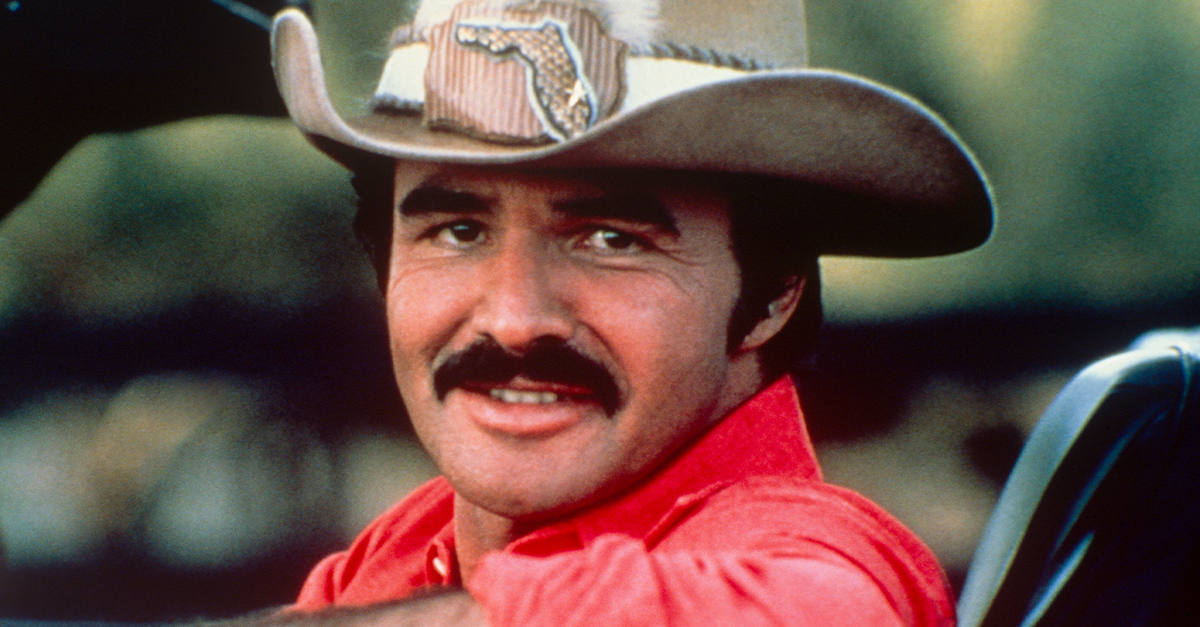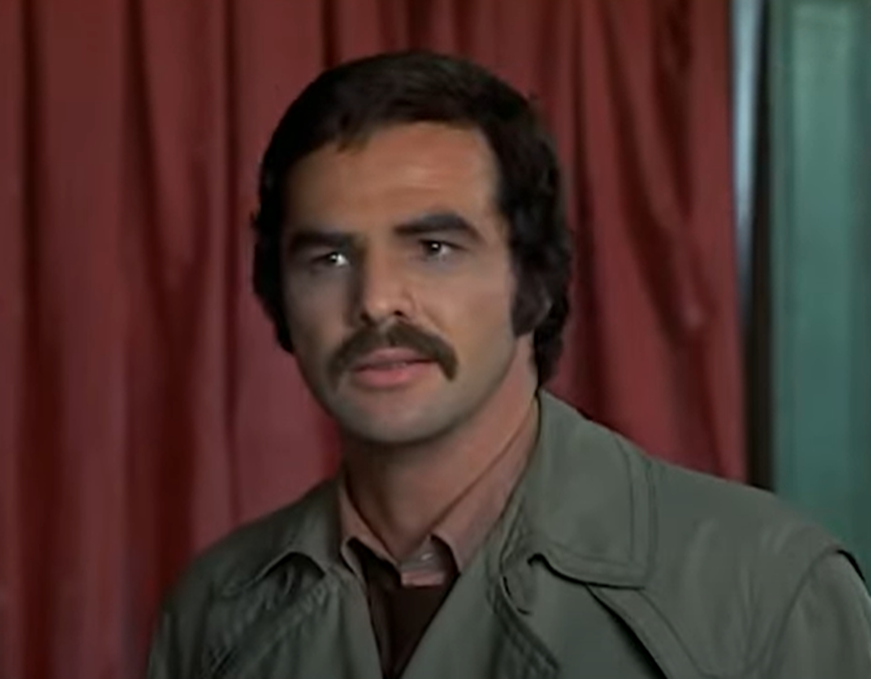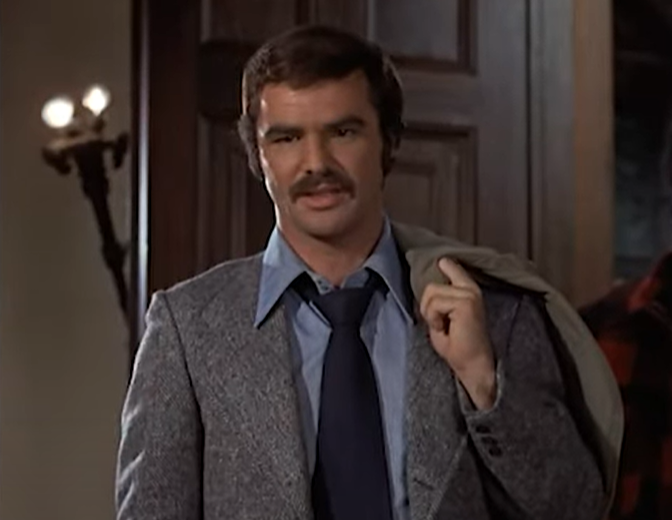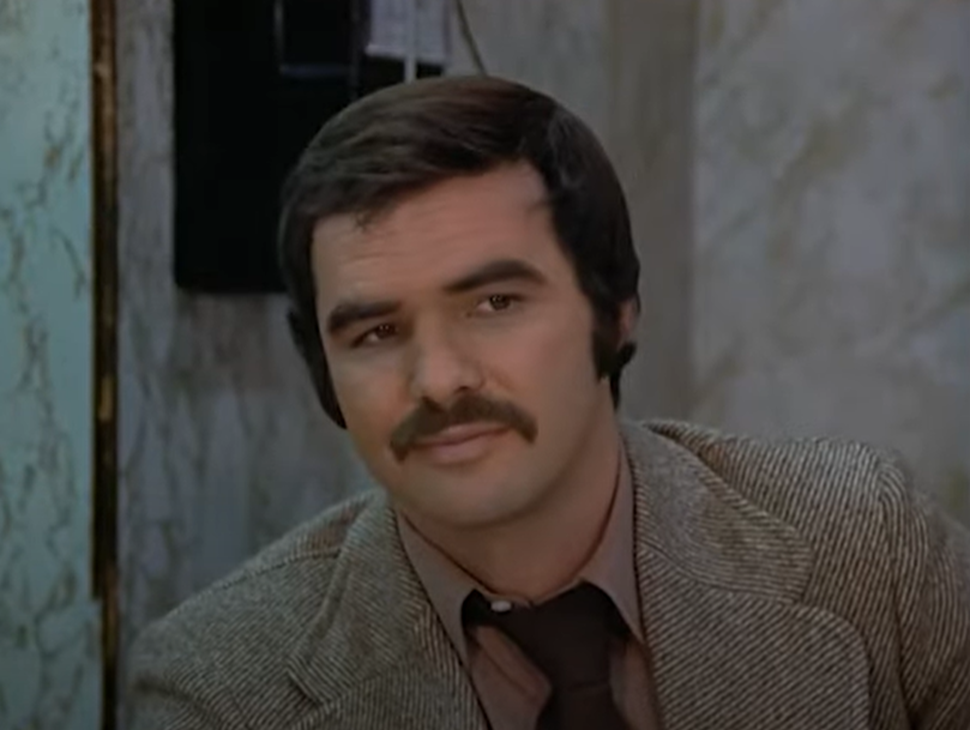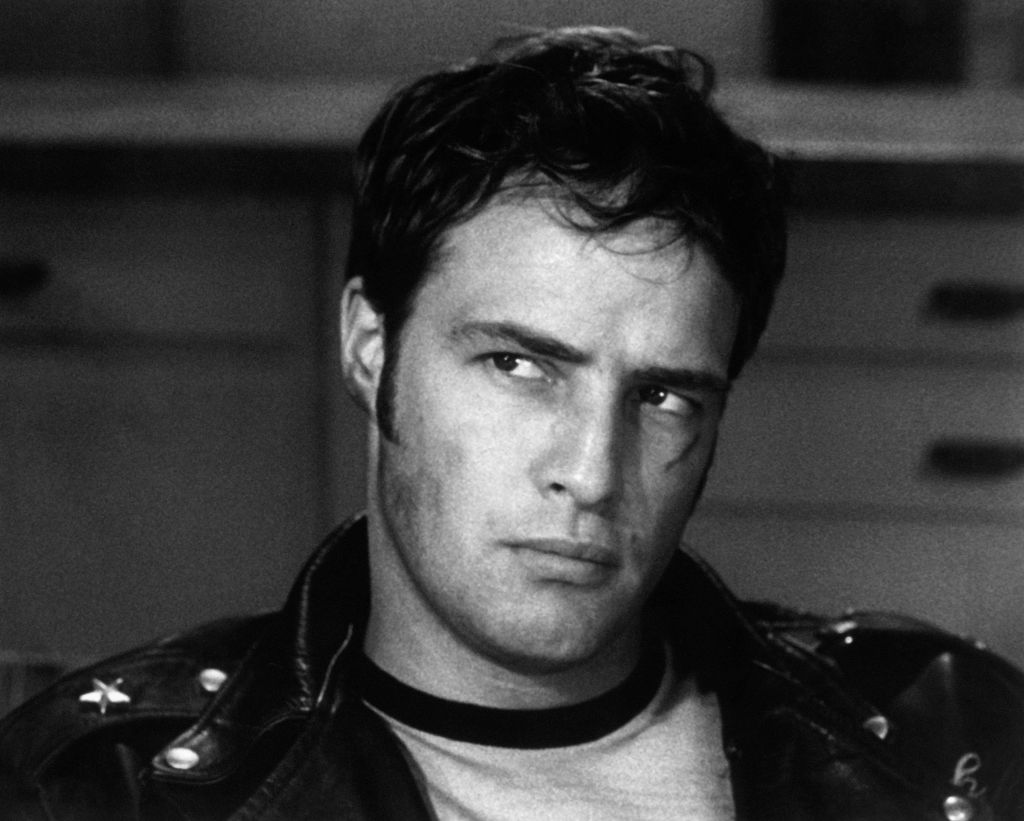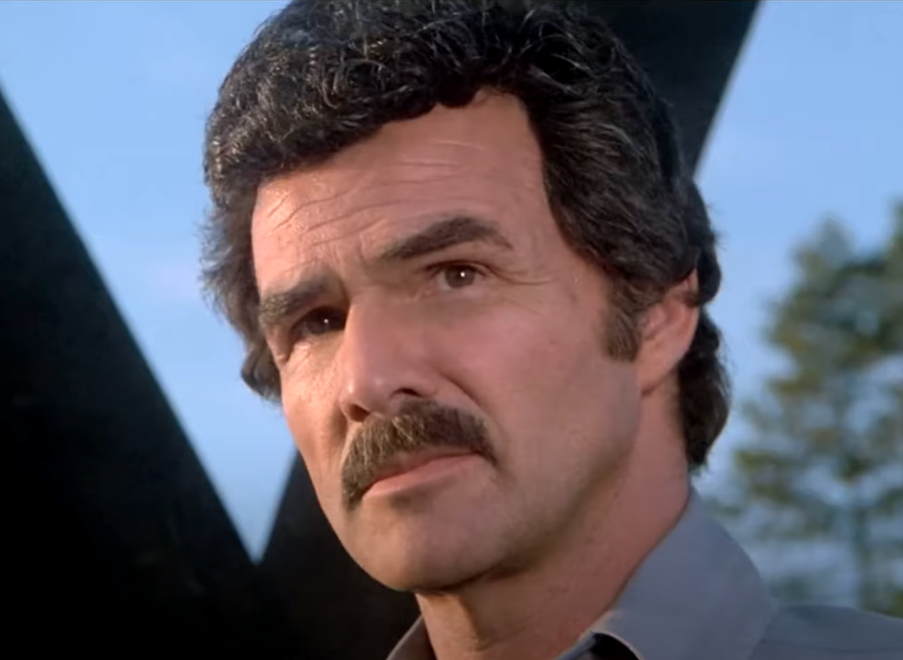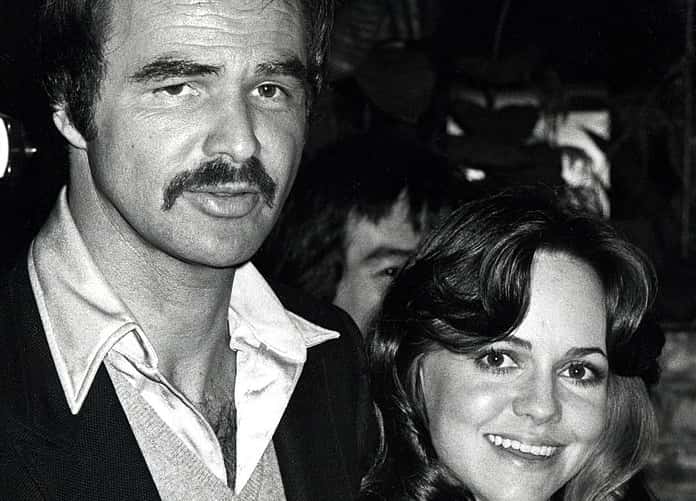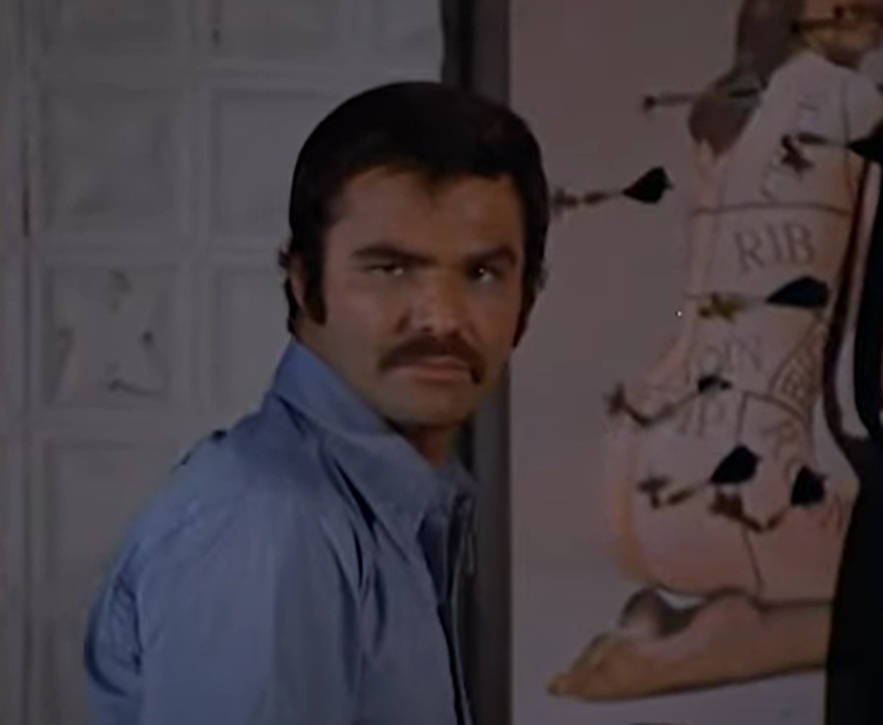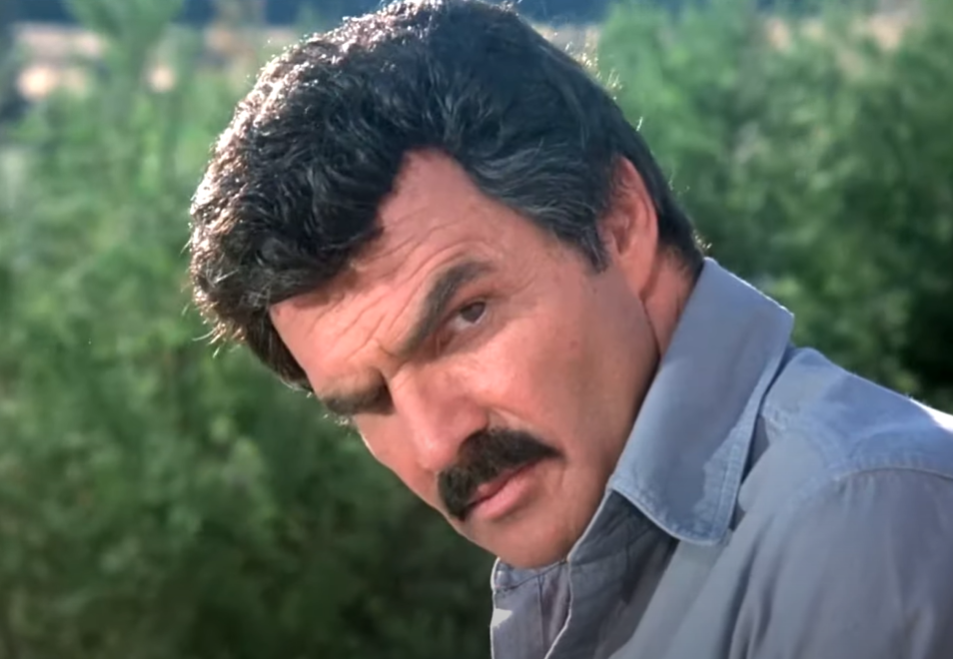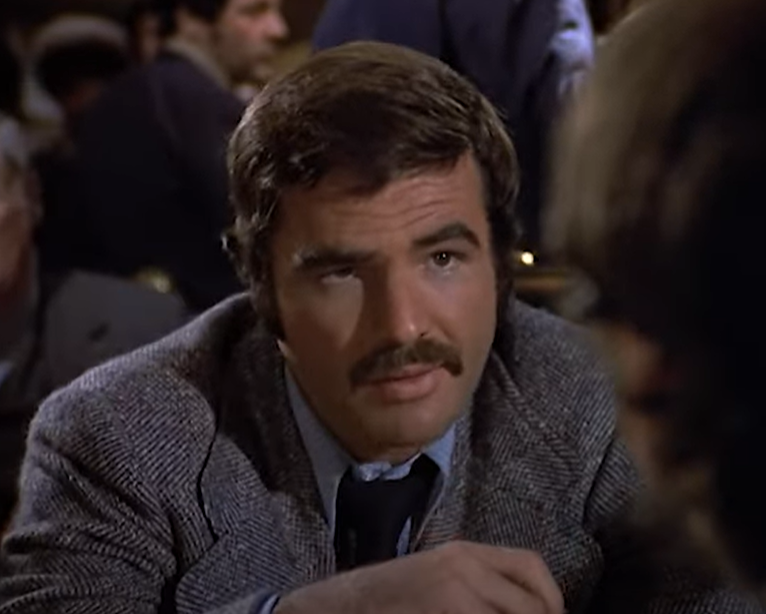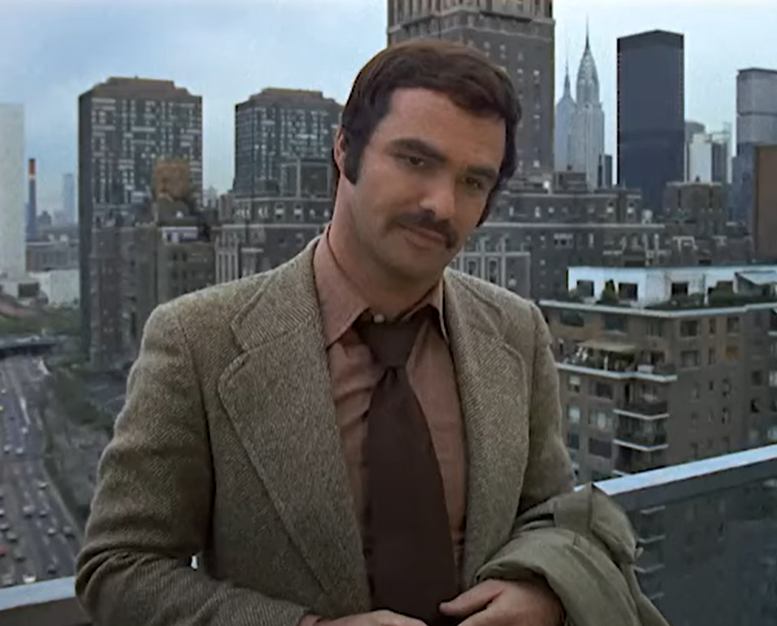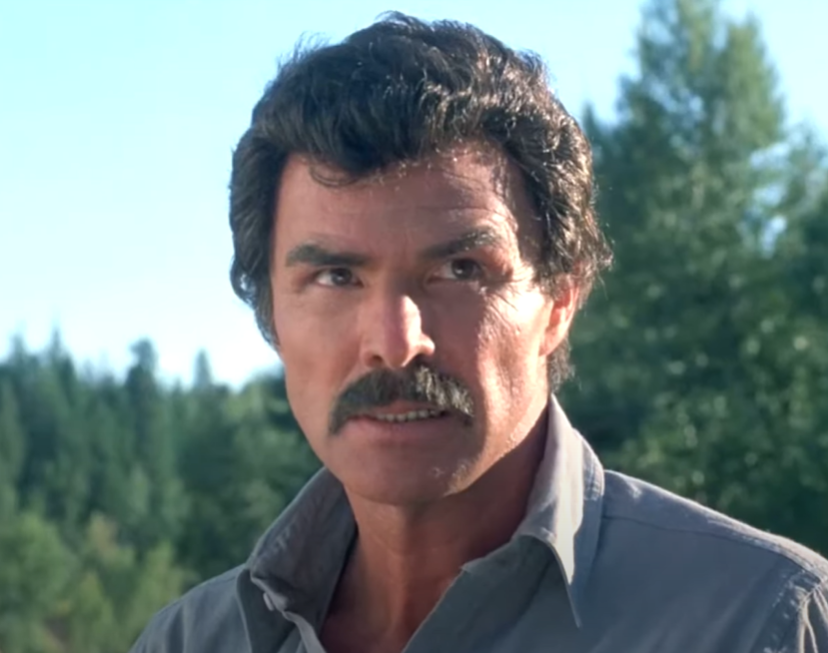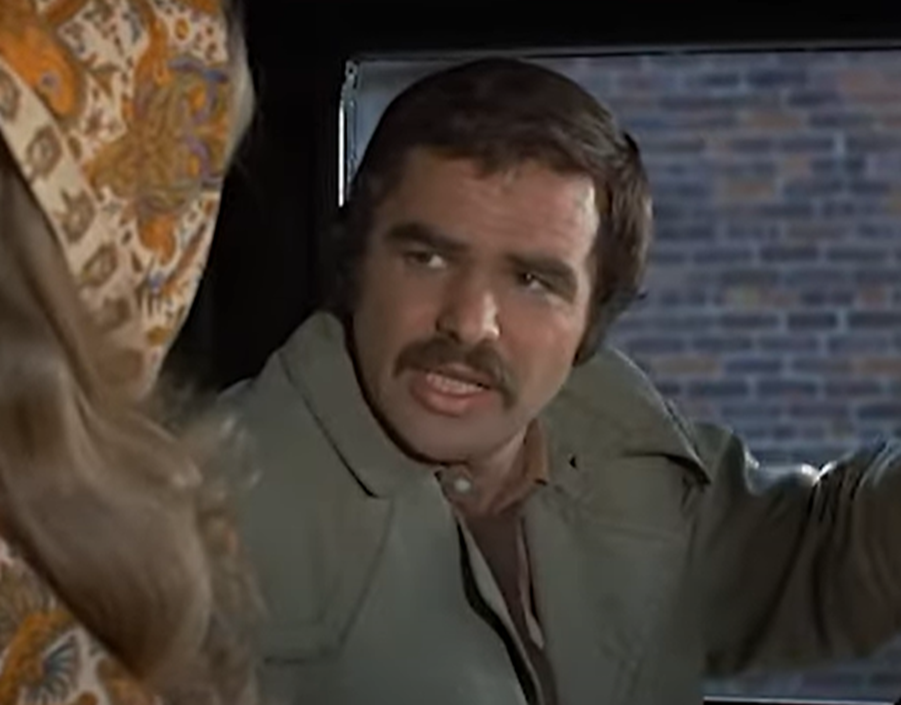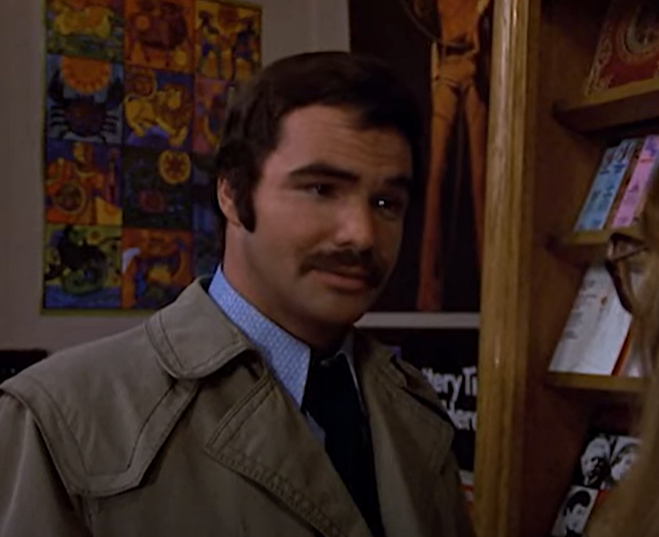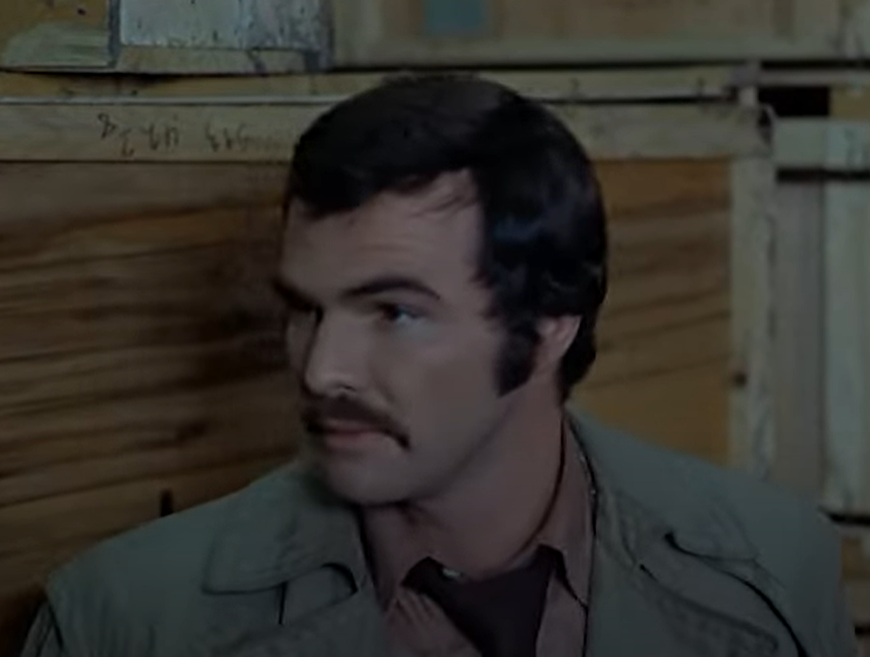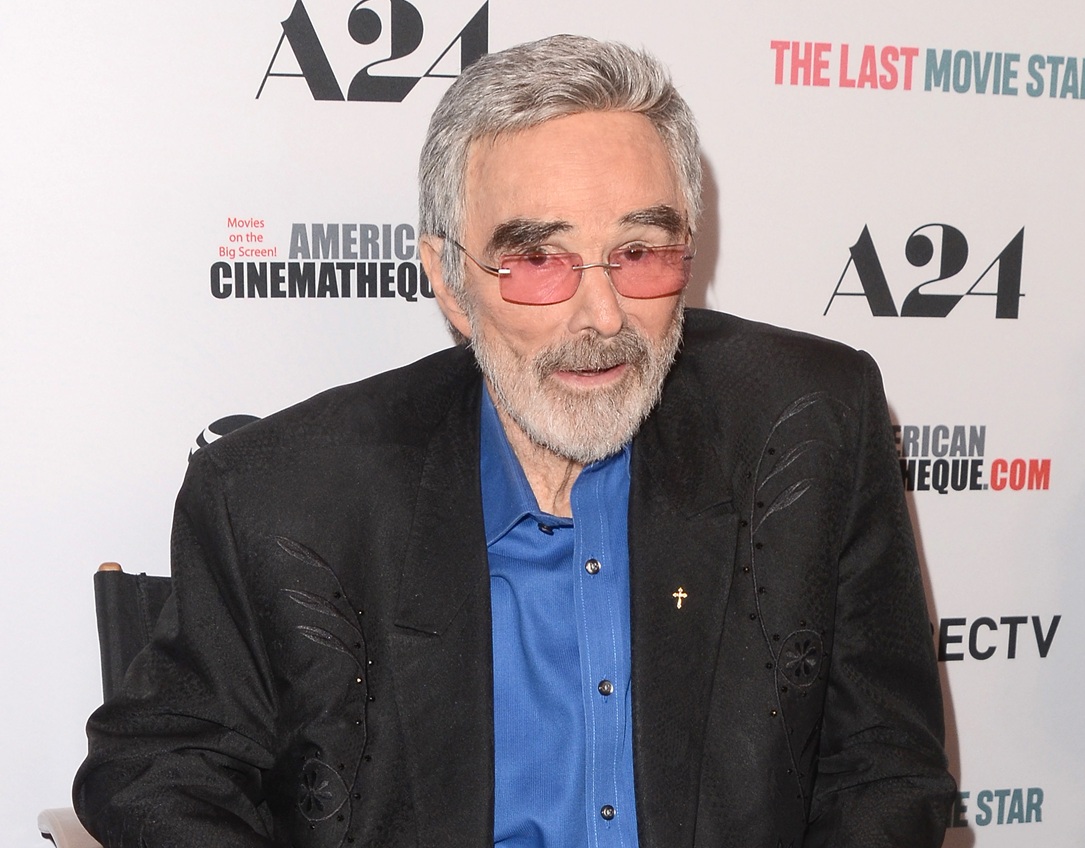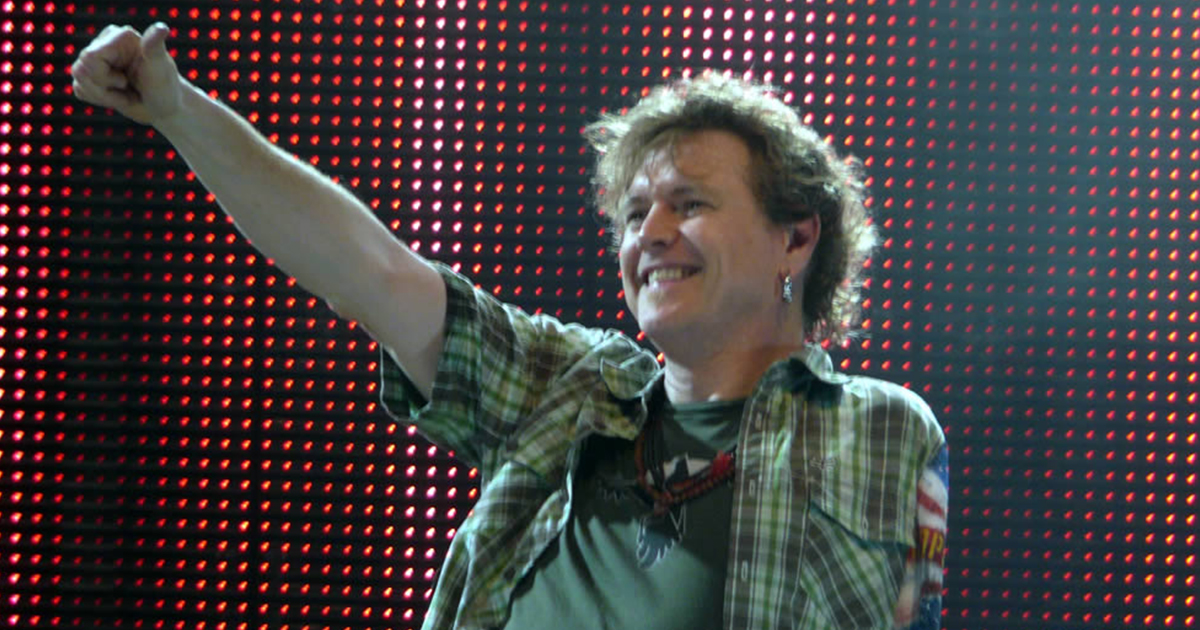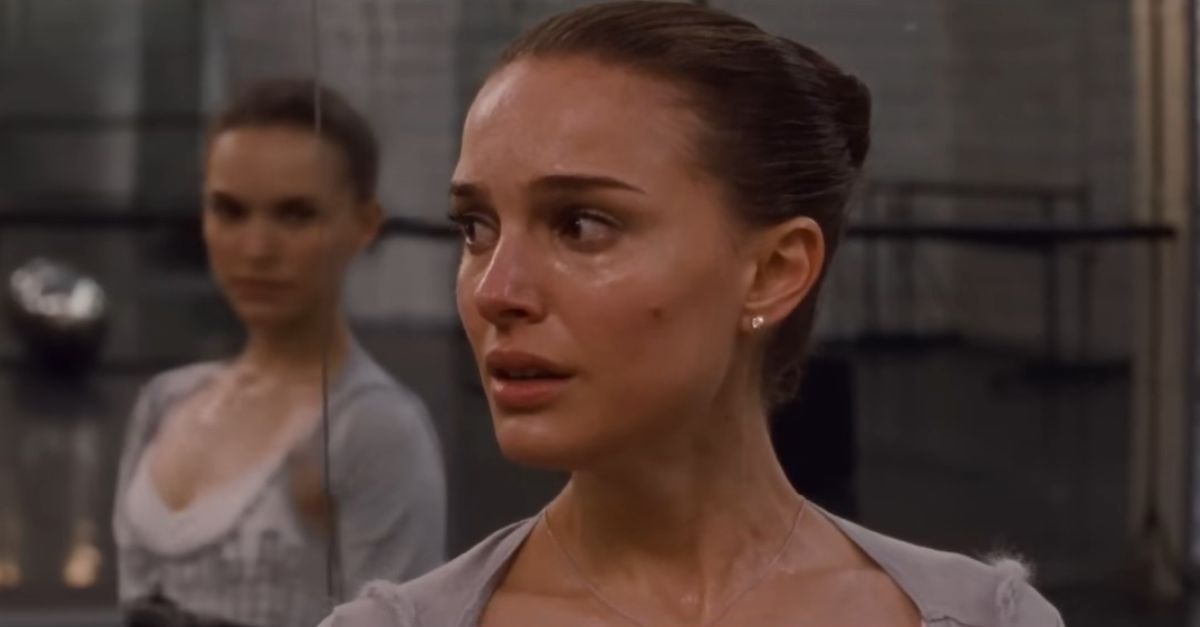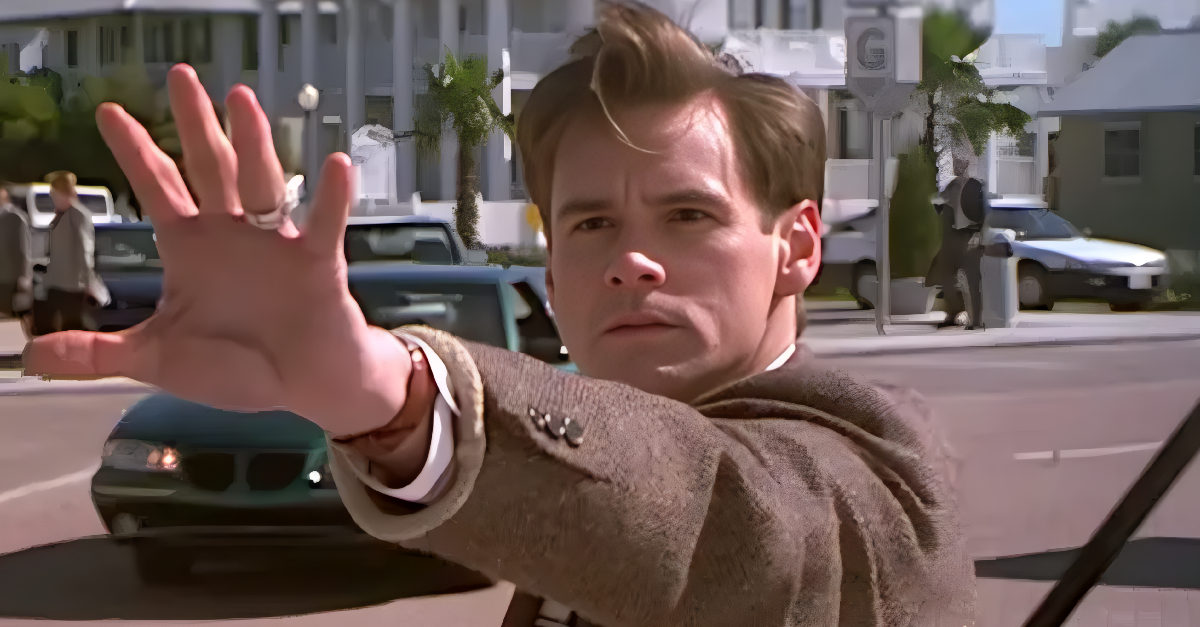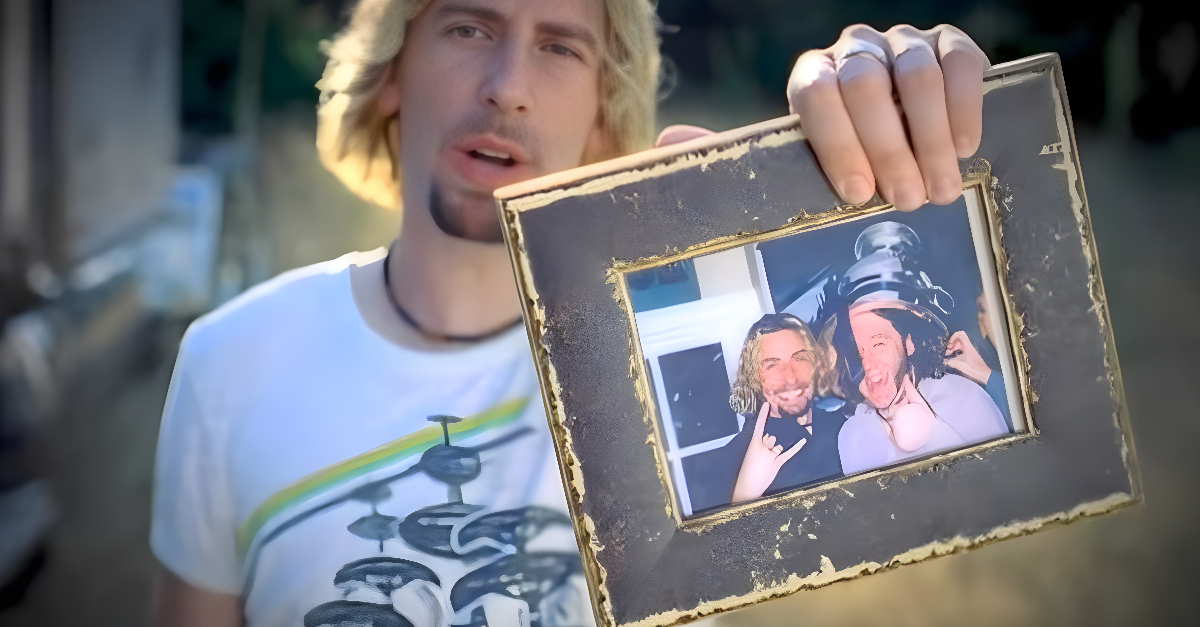A Life Of Triumph And Failures
Burt Reynolds was one of the Hollywood greats. He experienced extreme success throughout the late '70s and into the early '80s. However, with success comes pressure to succeed and unending temptation. Reynolds could have gotten so much more if he had only looked before leaping.
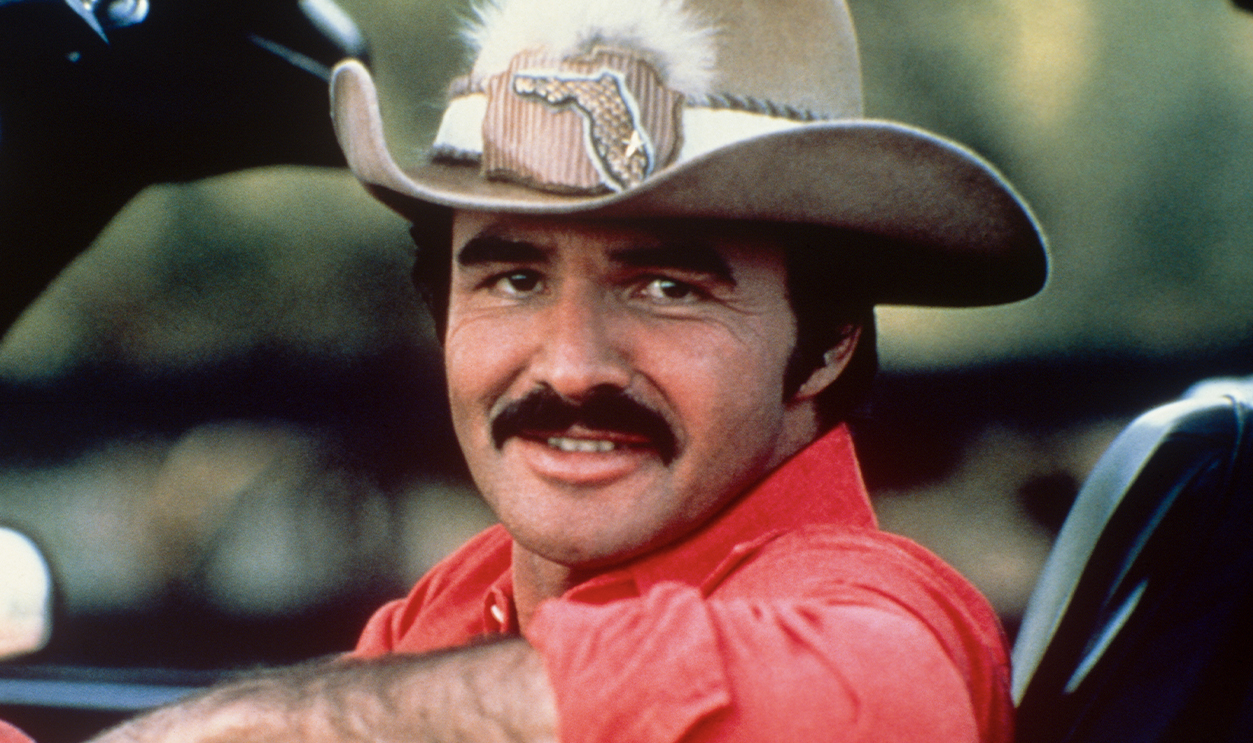
1. He Didn’t Dream Of Acting
Born Burton Leon Reynolds Jr, Burt Reynolds lived a fairly ordinary life before he became famous. His first passion was football. However, several injuries stopped him from being able to pursue the sport with any seriousness. It wasn’t until an English teacher encouraged him to try out for a play that Reynolds even considered acting as a path.
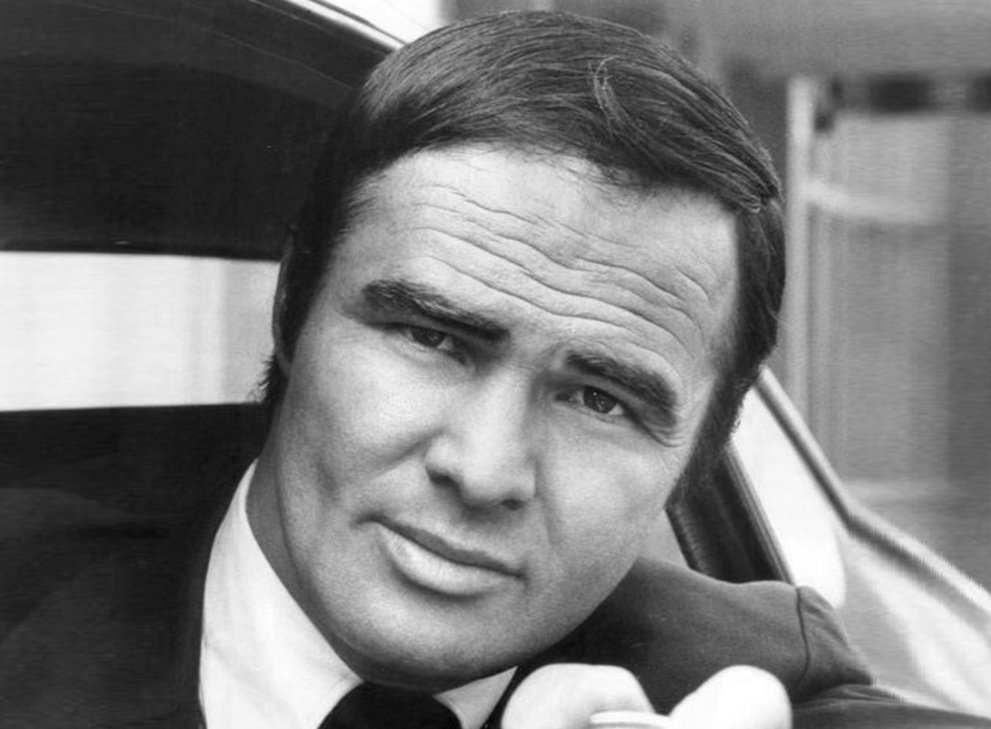 ABC Television, Wikimedia Commons
ABC Television, Wikimedia Commons
2. He Had Doors Open For Him
Although acting wasn’t Reynolds’ first passion, he saw immediate success. His charm and good looks opened doors for him that others might have missed out on. He performed in a well-reviewed Broadway show, before taking acting classes. Shockingly, he almost quit after struggling with improvisation in one of his classes.
However, acting in Mister Roberts along with Charlton Heston kept him in the medium. It also opened more doors.
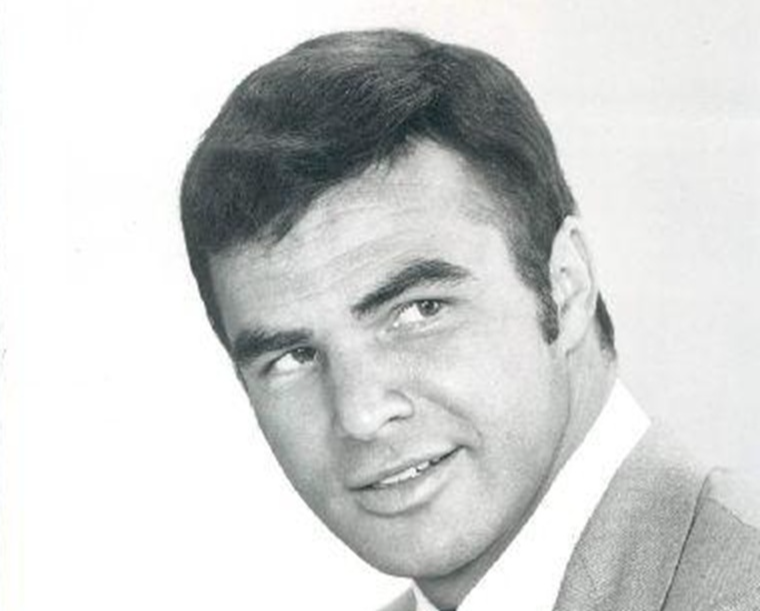 ABC Television, Wikimedia Commons
ABC Television, Wikimedia Commons
3. He Had A Doomed Audition
It seemed like Reynolds was set up to have an early break into the film industry. Following his run with Mister Roberts, Reynolds gained an audition for the major film Sayonara through his former director, John Forsythe. It sounded like an exciting opportunity, but there was just one problem.
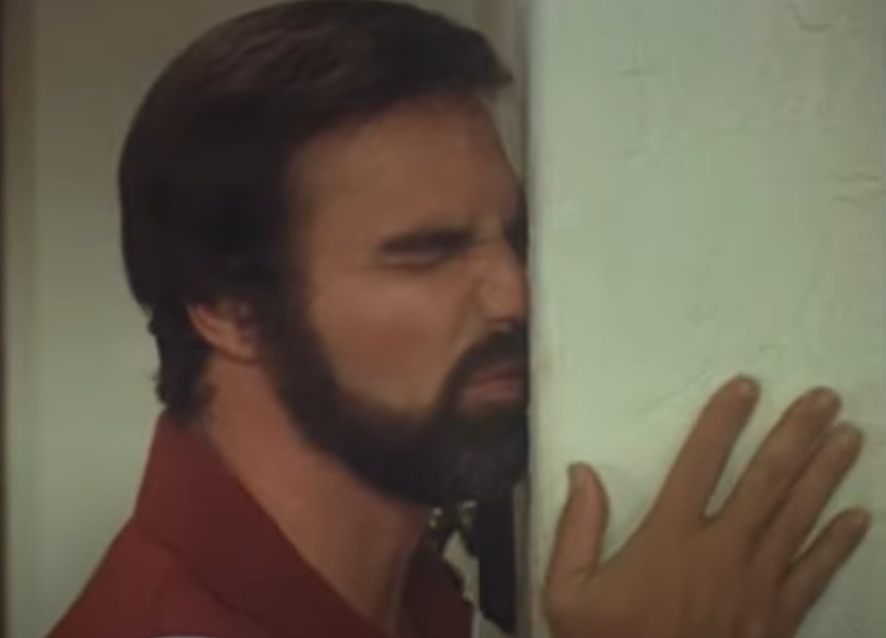 Gordon-Reynolds Productions, The End (1978)
Gordon-Reynolds Productions, The End (1978)
4. He Looked Too Much Like Brando
Unfortunately, Burt Reynolds bore a striking resemblance to the film’s star, Marlon Brando. Both men were exceedingly handsome—but in this rare case, Reynold's picture-perfect features did him no favors. Ultimately, the parallels between himself and Brando ensured that he would never star in Sayonara. What's more?
It would not be the last time he suffered the comparison.
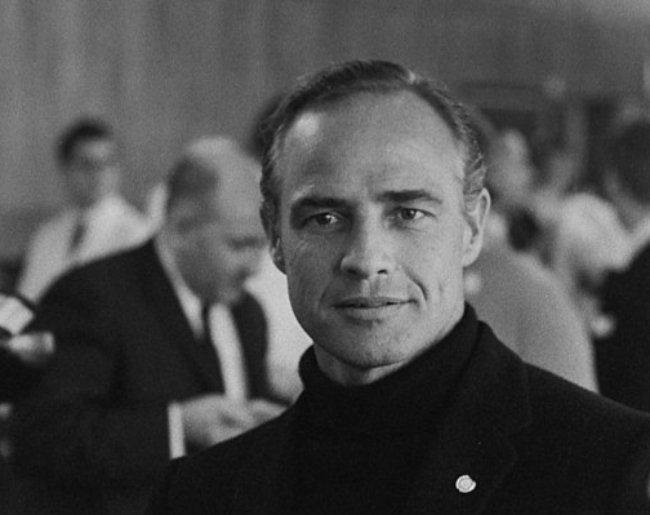 Finnish Heritage Agency, CC BY 4.0, Wikimedia Commons
Finnish Heritage Agency, CC BY 4.0, Wikimedia Commons
5. He Worked Many Different Jobs
When it came to making money, Reynolds certainly took whatever job he could get in the early days. He had a finger in every pie—working as a dishwasher, dockworker, server, bouncer, and delivery truck driver. However, in the late '50s, he broke into television, appearing in a number of smaller guest roles.
Luckily, his big break was just around the corner.
 Florida Memory, Wikimedia Commons
Florida Memory, Wikimedia Commons
6. He Succeeded On Looks
The television series Riverboat thrust Reynolds into the spotlight. The show starred Darren McGavin as the boat captain, and Reynolds as his partner and ship pilot. But the reason he snagged the role may have had a lot to do with his heartthrob potential. Sources say that Reynolds began to gain a reputation for being “a double for Marlon Brando”.
In the end, though, his role on Riverboat wasn't everything he dreamed it would be.
 Unknown author, Wikimedia Commons
Unknown author, Wikimedia Commons
7. He Didn’t Respect The Opportunity
Even though Riverboat was a fantastic gig—providing Reynolds with both a steady income and public recognition—Reynolds hated his time there. Disastrously, something just did not click between him and his co-star McGavin. To make matters worse, he claimed that he also didn't jive with the executive producer. The poison cherry on top? He despised his role, calling it “a stupid part”.
After 20 episodes, Reynolds walked away from the show... and sunk his career with it.
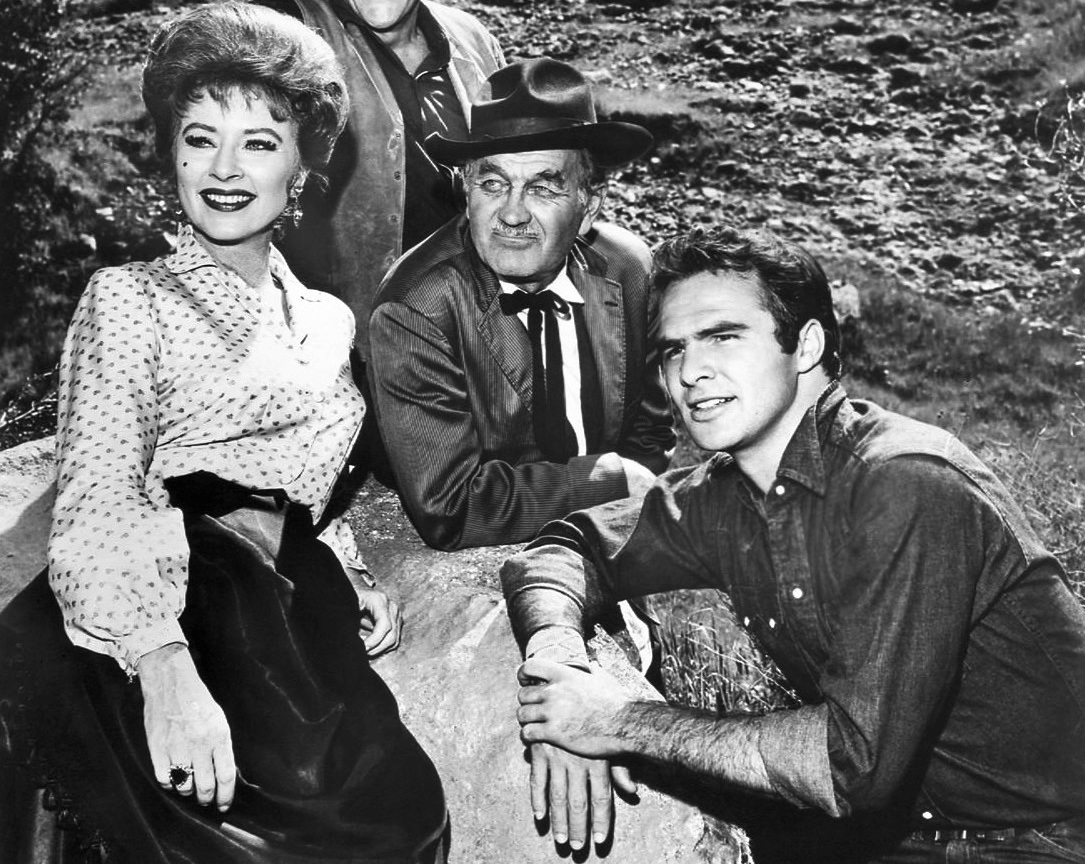 CBS Television, Wikimedia Commons
CBS Television, Wikimedia Commons
8. He Ruined His Reputation
Talent may play some part in Hollywood. However, it is primarily a game of recognition, reputation, and who you know. After Reynolds walked away from Riverboat, he couldn’t get another job. As he put it, “I didn't have a very good reputation. You just don't walk out on a network television series”.
He survived on guest features, stringing together small roles out of what was available.
 Unknown author, Wikimedia Commons
Unknown author, Wikimedia Commons
9. He Took Advantage Of His Looks
In 1963, Reynolds’ resemblance to Marlon Brando struck gold for him again. He was cast in a one-off role for the cult classic The Twilight Zone. Reynolds appeared in the final episode of the series’ fourth season as the character Rocky Rhodes. Despite the name change it was a clear spoof on Marlon Brando, just as the whole episode was a satire on the film industry in general.
The episode had mixed reviews. It would also come back to haunt Reynolds.
 CBS Television Network. Wikimedia Commons
CBS Television Network. Wikimedia Commons
10. He Made A Quick Marriage
1963 was also the year that Reynolds’ personal life saw the first of its many upsets. He married English actress Judy Carne. There is little known about the marriage itself. Reports of how they met, or what their life was like together are sparse. However, what we do know is that things turned ugly only two years later.
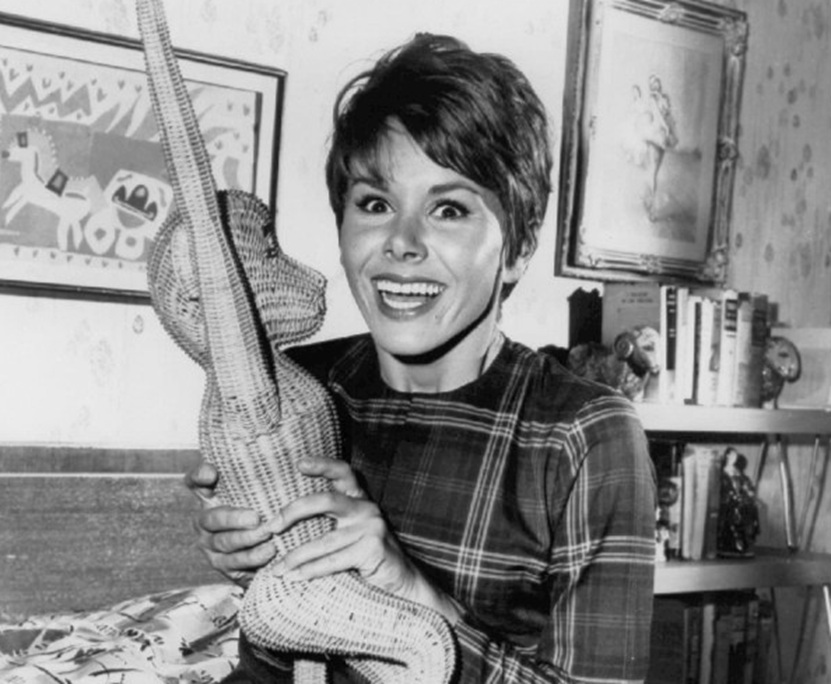 Desilu productions, Wikimedia Commons
Desilu productions, Wikimedia Commons
11. He Couldn’t Make It Last
Reynolds’ marriage to Judy Carne was short-lived. Though they married in 1963, they were divorced by the end of 1965. This separation took a heartbreaking toll on Reynolds, who later admitted, "I lost all interest in women, I just couldn't go out with anyone . . . She broke my heart, she really did".
This bitter end to a romance would become a chilling trend in Reynolds’ life.
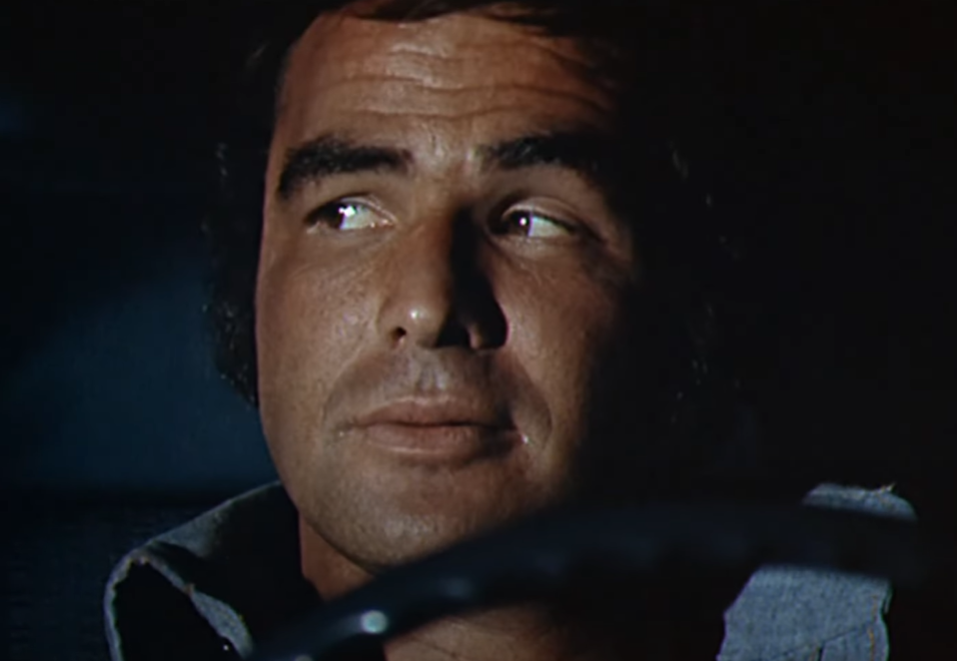 Gordon-Reynolds Productions, The End (1978)
Gordon-Reynolds Productions, The End (1978)
12. His Effort Paid Off
Although Reynolds had to suffer through years of bit parts and failed attempts to “make it big," the industry rewarded his patience. He landed his next big break with the role of Quint Asper in Gunsmoke. It seemed Reynolds had learned his lesson, for when he took the role, he confidently proclaimed that he was on board until the very end: "I think it's a terrible mistake for an actor to leave a series in the middle of it”.
Well, Reynolds almost learned his lesson.
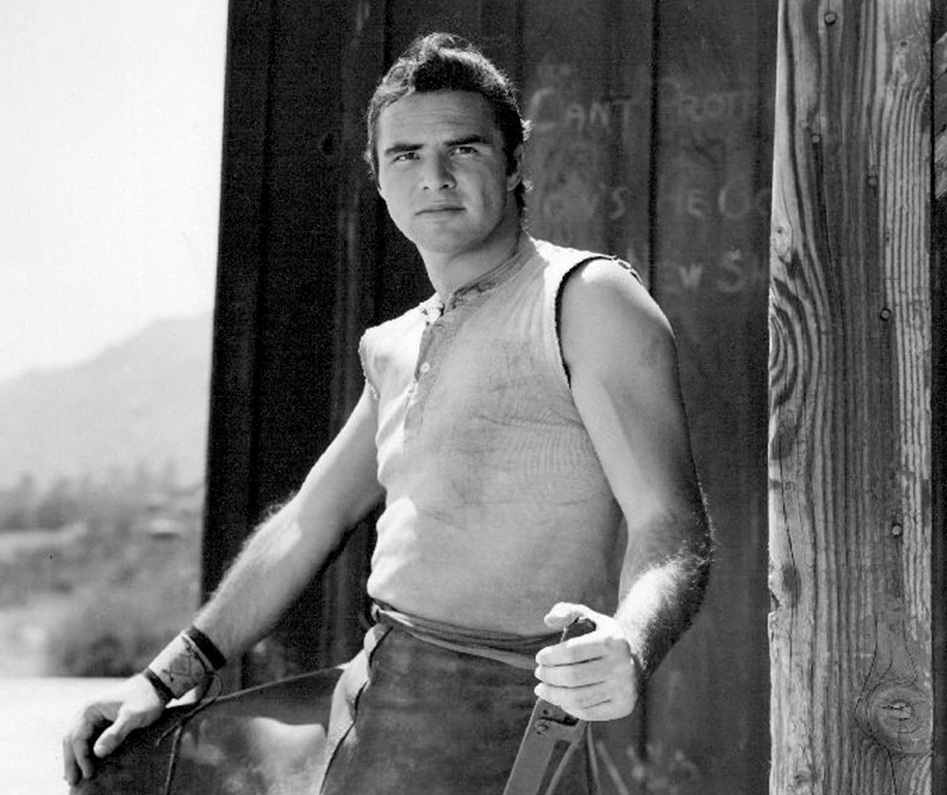 CBS Television, Wikimedia Commons
CBS Television, Wikimedia Commons
13. He Appreciated The Chance
Despite his declaration to stay until the show finished, Reynolds didn't keep his promise, leaving Gunsmoke before its natural end. However, this time, the parting was more amicable. Reynolds recalled the show as “the happiest period of my life". His parting would not, thankfully, damage his reputation.
His second chance in television had paid off, but would a second chance at love reap similar rewards?
14. He Travelled Abroad
Only a few years after his divorce from Carne, Reynolds would find love again. This time, the sparks would fly in an exotic locale: Japan. Reynolds was in Japan to film one of his many action films, Impasse—and while there, he would meet Miko Mayama. Mayama was a kabuki theater player who joined the cast. She and Reynolds would go on to live together for almost four years—until another woman caught Reynolds’ eye.
15. He Was Average
At this point in his career, Reynolds made a lot of movies that some might consider forgetful. Reynolds joked that he was the most “well-known unknown". It was this easy self-deprecation and charm that would save Reynolds’ career. In the 1970s, an appearance on The Merv Griffin Show would launch Reynolds’ success as a talk show guest. This, in turn, opened up more acting opportunities for him.
16. He Met An Older Woman
Reynolds’ success on the talk show circuit did more than just add a much-needed injection into his career. It also brought him what might have been his most successful relationship. Reynolds appeared as a guest on the talk show of American singer turned actress, Dinah Shore—Dinah’s Place.
Articles report that Reynold was immediately enamored with Shore, even though Shore was practically two decades older than him.
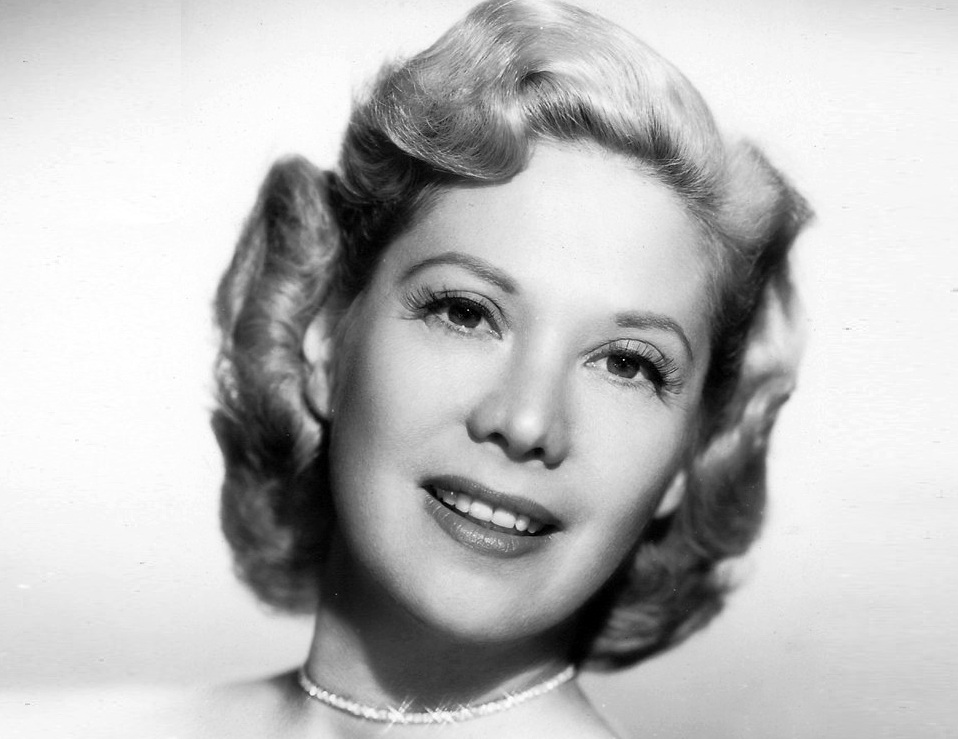 Paramount Pictures, Wikimedia Commons
Paramount Pictures, Wikimedia Commons
17. He Courted Scandal
Many people claim that age is merely a number, and it seems that Burt Reynolds and Dinah Shore certainly agree with them. While Shore initially turned Reynolds down when he asked her to spend the weekend with him following the taping of her show, they reunited a short time later in Chicago—and sparks started to fly.
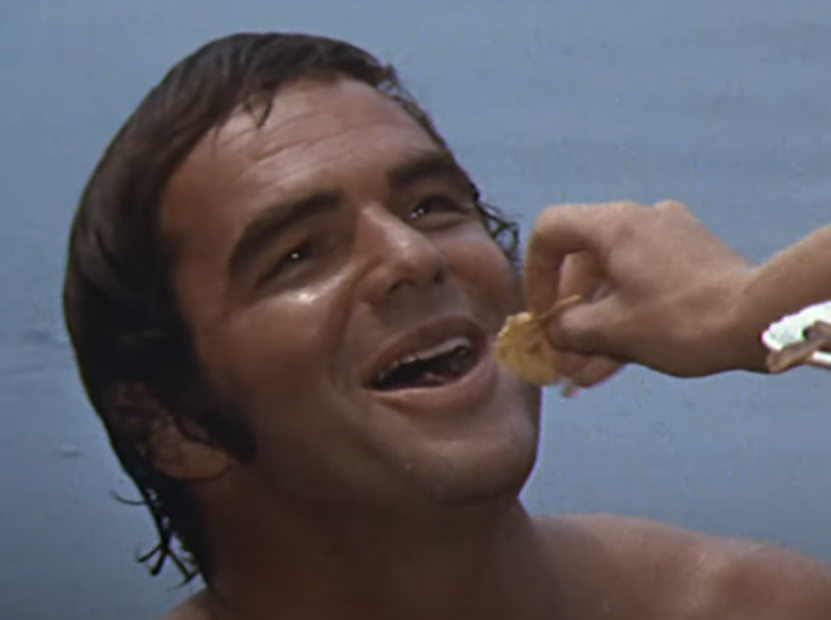 Levy-Gardner-Laven, White Lightning (1973)
Levy-Gardner-Laven, White Lightning (1973)
18. He Didn’t Care About Age
The age gap between Reynolds and Shore was a cause for gossip and scandal in the public sphere. However, it didn’t bother Reynolds and it certainly didn’t bother Shore. To Shore, “A human relationship has nothing to do with chronology. It has to do with chemistry; man is a man is a man. And an attraction is an attraction”.
After two failed relationships, it seemed Reynolds had finally found something that worked.
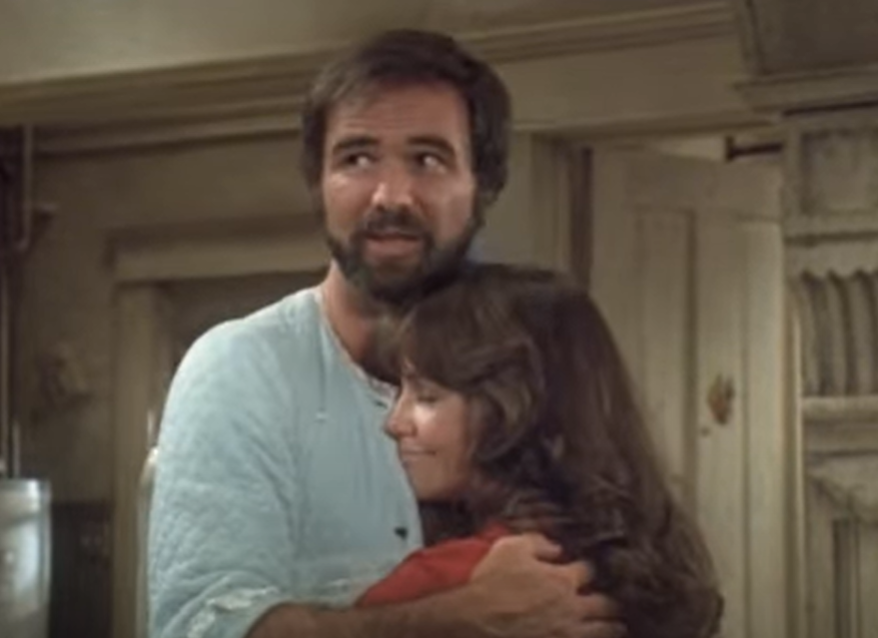 Gordon-Reynolds Productions, The End (1978)
Gordon-Reynolds Productions, The End (1978)
19. He Had An Opportunity
Around the time that Reynolds’ relationship with Shore was blooming, his career faced a similar parallel. A movie was in the works and there were whispers that they were considering Reynolds for the part. The movie was none other than The Godfather. It would have been the role of a lifetime for Reynolds.
However, there was a problem: Marlon Brando.
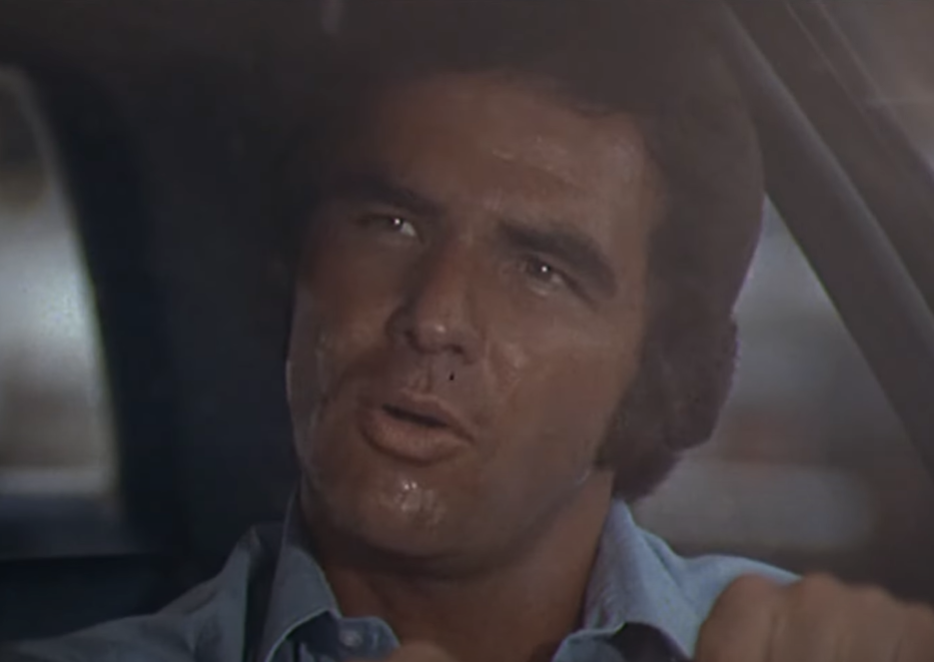 Levy-Gardner-Laven, White Lightning (1973)
Levy-Gardner-Laven, White Lightning (1973)
20. He Made An Enemy
Now, you’ll recall that early in Reynolds' career, there had been a lot of talk over the fact that he shared a striking resemblance to Brando. While he may have lost out on a few roles because of this, he also got some for it. However, while all this was going on, Brando formed his own opinion of Reynolds—and it wasn’t a good one.
21. His Feud Was One-Sided
Hollywood is full of feuds. Some might argue they are the real things that keep it running. However, few feuds are as remarkable as the one between Marlon Brando and Burt Reynolds—mostly because it was so completely unbalanced. Brando hated Reynolds, and wouldn’t hesitate to let people know. Reynolds had no idea why.
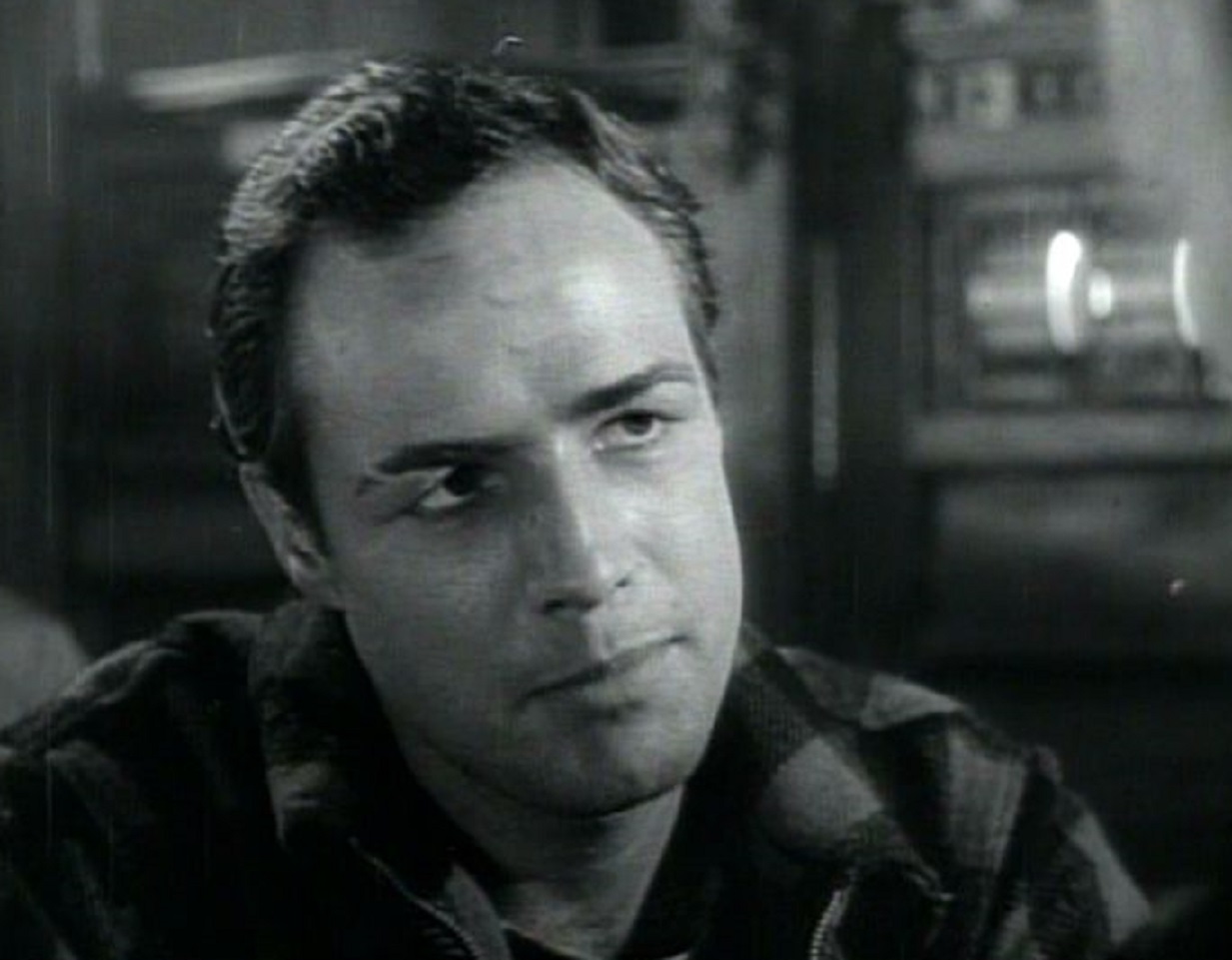 Trailer screenshottrailer at IMDB, Wikimedia Commons
Trailer screenshottrailer at IMDB, Wikimedia Commons
22. He Was Slandered
Most famously, an audio recording caught Brando airing his grievances for Reynolds. To Brando, Reynolds was “the epitome of something that makes me want to throw up." Somehow, that wasn't the worst of it. He went even further, explaining that he was “the epitome of everything that is disgusting about the thespian”.
Finally, Brando insisted Reynolds "worships at the temple of his own narcissism”. Reynolds, in return, said very little about Brando.
23. He Didn’t Understand
Brando’s antagonism towards him was something that Reynolds never understood. Later in life, the actor called Brando “a strange man”. When they finally met, Reynolds gave Brando the honor of calling him one of the best actors around. Brando's response was diabolical: “I wish I could say the same for you”.
Reynolds insisted that he did not know what he’d ever done to Brando, though there are theories.
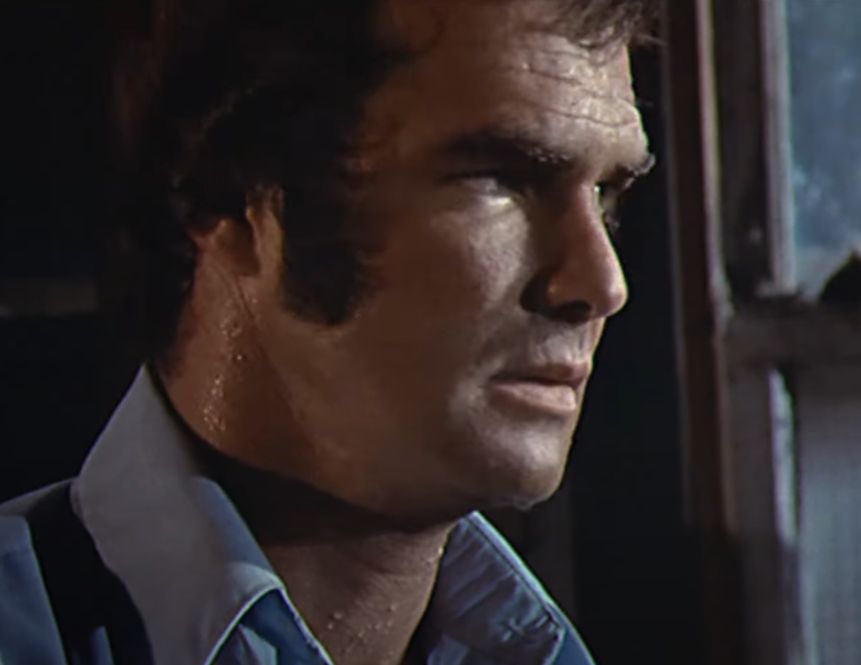 Levy-Gardner-Laven, White Lightning (1973)
Levy-Gardner-Laven, White Lightning (1973)
24. He Started It
Whether the pair liked it or not, they were tied together. They looked like each other and people noticed. Reynolds claimed he never attempted to imitate Brando, and he even grew a mustache to limit the similarities. However, it may have been the mocking role he took on in The Twilight Zone all those years ago that had flared up Brando’s alpha male tendencies.
Either way, it became a problem for Reynolds in the early '70s.
25. He Was Denied
As The Godfather was in development, there became talks that Reynolds was being considered for a role. Some sources say Sonny Corleone and others say Michael Corleone. However, what role was being spoken of doesn’t matter. As we all know, Reynolds did not get the role and missed out on the mega opportunity The Godfather represented. A popular rumor is that it was Marlon Brando’s fault.
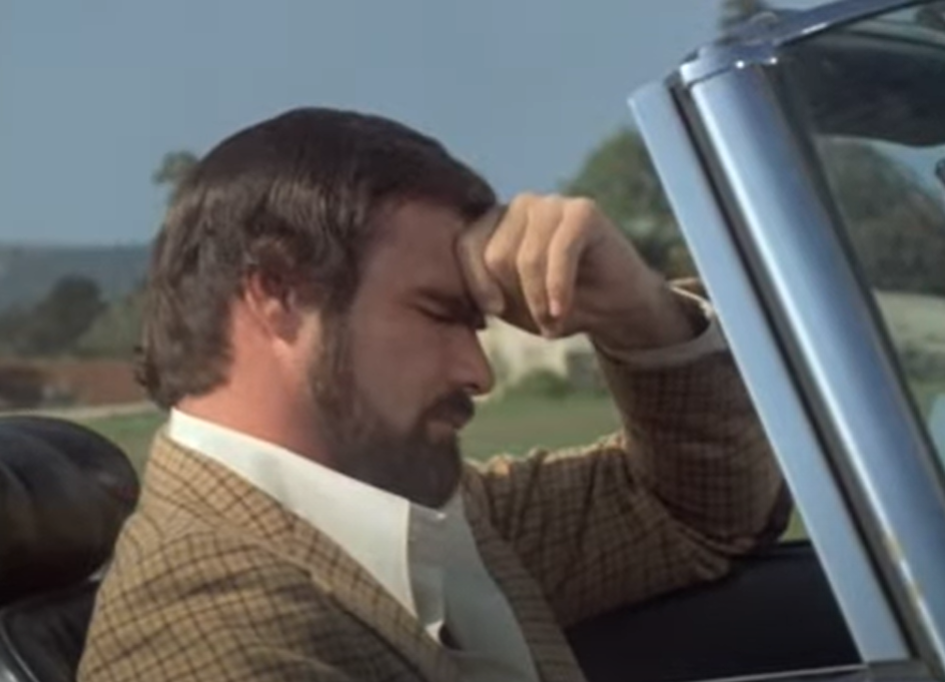 Gordon-Reynolds Productions, The End (1978)
Gordon-Reynolds Productions, The End (1978)
26. His Feud Ruined An Opportunity
Of course, almost everyone now knows that Brando was cast in The Godfather. More than that, he is “The Godfather”. It is likely his most iconic role. Many say that Brando used his influence to ensure that Reynolds would never appear in the film. Brando has denied this, claiming the director, Francis Ford Coppola, would’ve never cast Reynolds. The truth is hard to say.
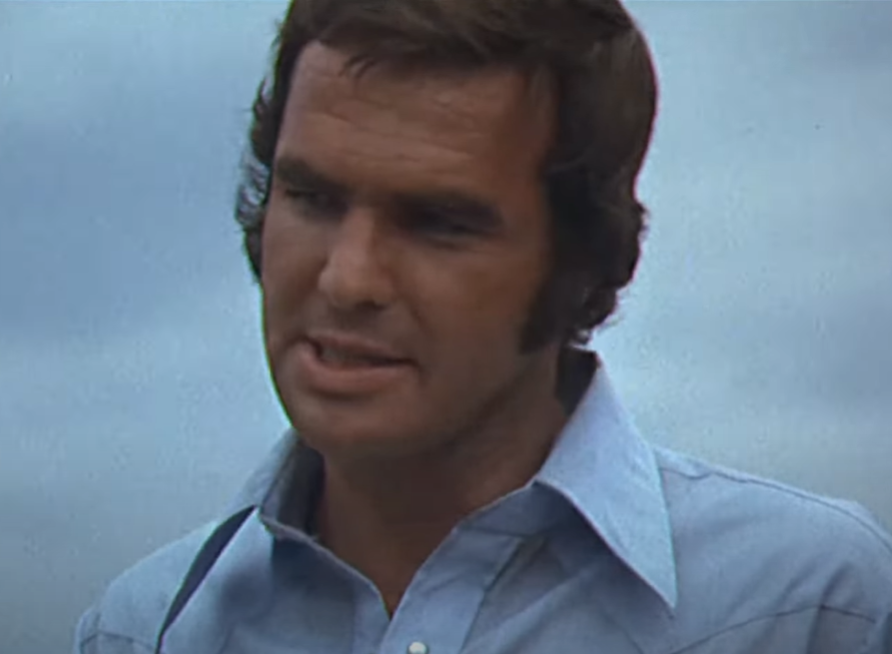 Levy-Gardner-Laven, White Lightning (1973)
Levy-Gardner-Laven, White Lightning (1973)
27. He Lost The Chance
There are many stories about why Reynolds didn’t appear in The Godfather. Reynolds has even stated that they offered him the role but he turned it down—something possible given his history of turning down iconic roles. However, whatever the “why” was, the fact remains that Reynold missed out on The Godfather.
He needed to find another vehicle to continue launching his career.
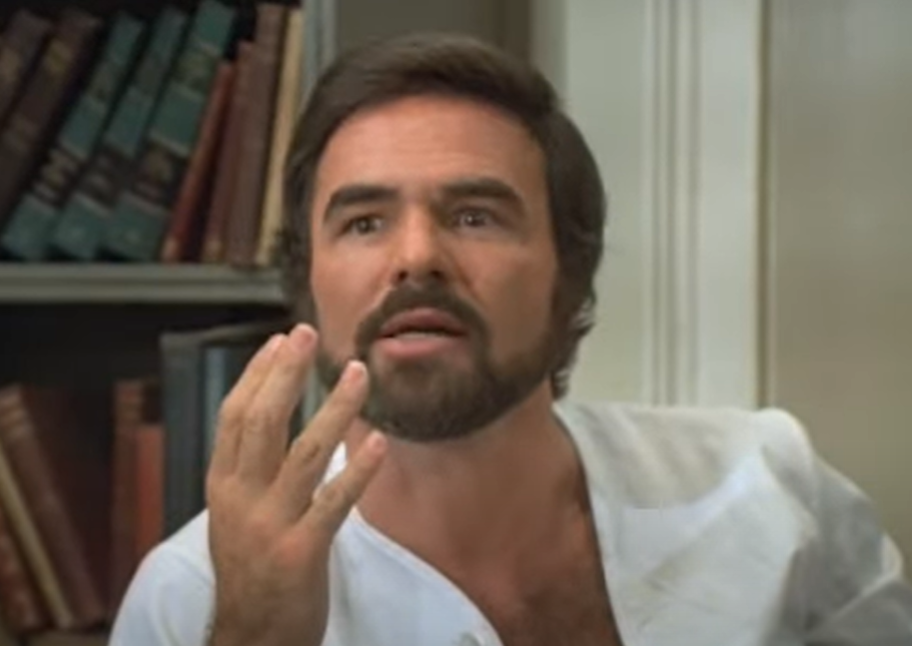 Gordon-Reynolds Productions, The End (1978)
Gordon-Reynolds Productions, The End (1978)
28. He Found A New One
Thankfully for Reynolds, he would not have to wait long to find a film that would showcase his growth as an actor. Reynolds earned a major role in Deliverance, a thriller directed by John Boorman. Reynolds felt that this moment launched his career. He joyfully stated, “I've waited 15 years to do a really good movie”. He had the career. He had the woman. What could go wrong?
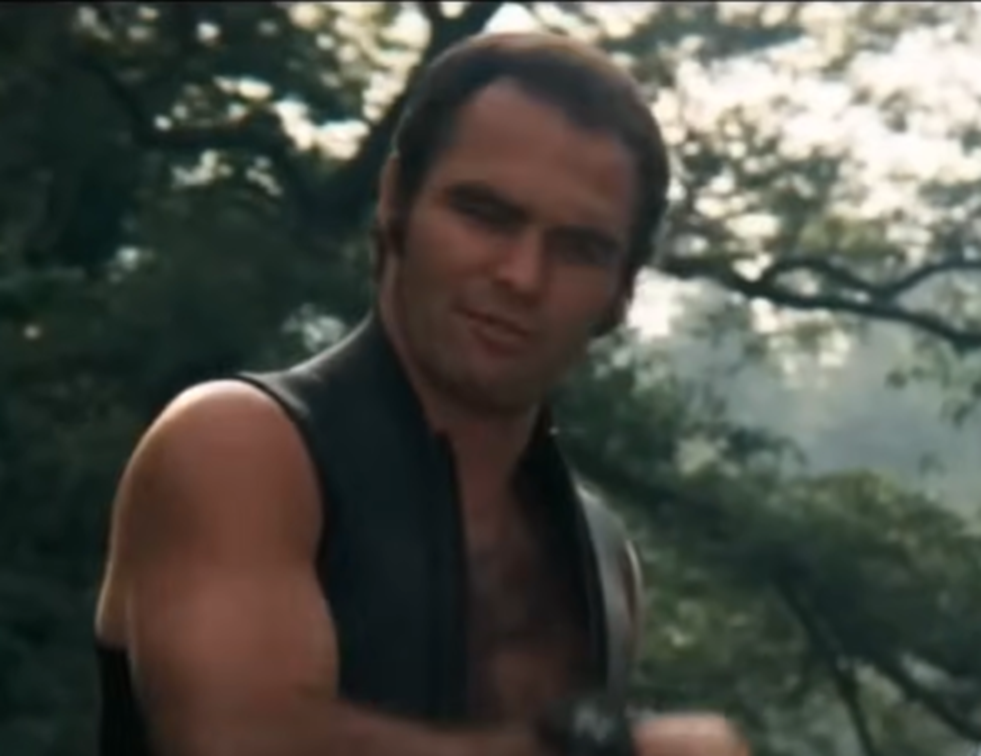 Warner Bros., Deliverance (1972)
Warner Bros., Deliverance (1972)
29. He Took Advice
During this time, Reynolds’ relationship with Shore continued to flourish. Not only were they getting on as strong as ever, but Reynolds appreciated the insight she could provide him. He recalled, “She had experienced all that I was just going through, and she gave me some great advice”. However, that age gap would eventually become a much deeper issue.
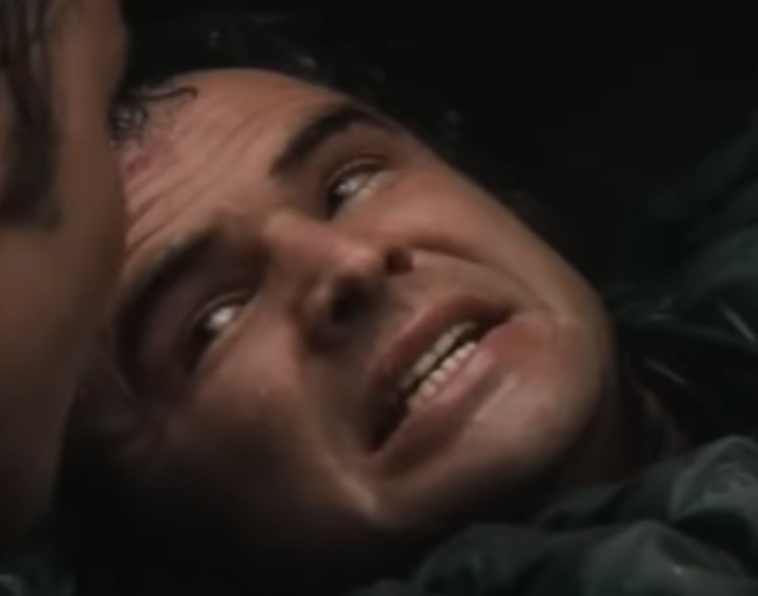 Warner Bros., Deliverance (1972)
Warner Bros., Deliverance (1972)
30. He Couldn’t Ignore It
As much as the pair would like to believe that a man is a man and attraction is attraction, they could not ignore some undeniable truths about age. By 1974, Reynolds was a 38-year-old man with two failed relationships. He wanted to settle down and start a family. Shore had different ideas.
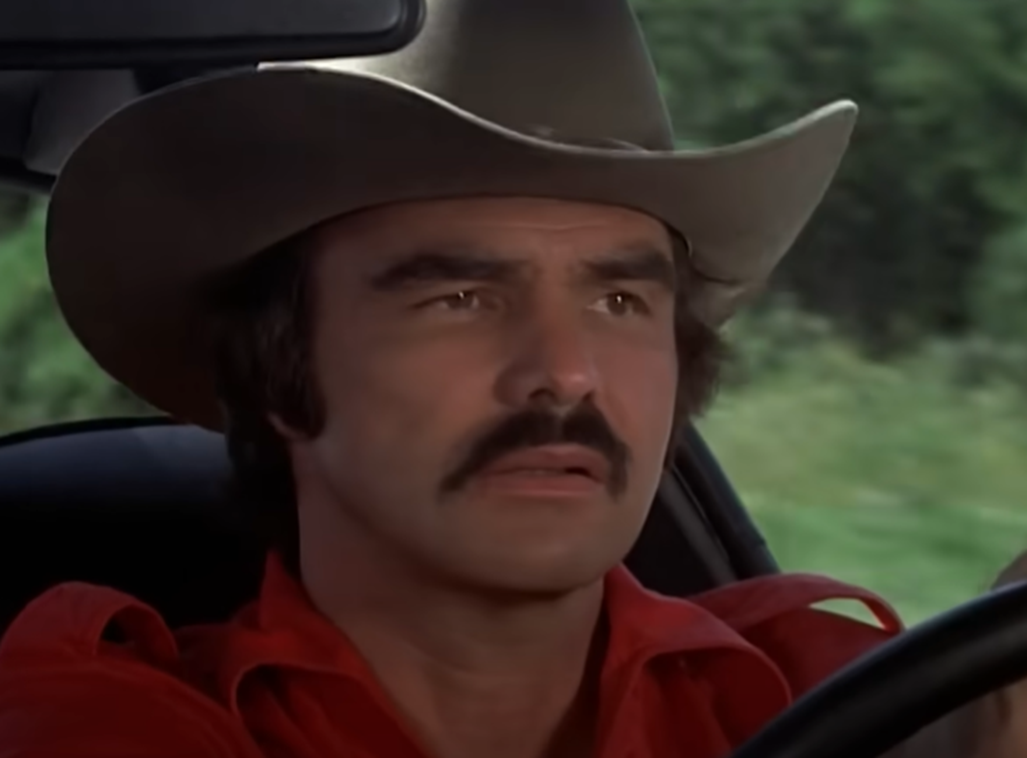 Universal, Smokey and the Bandit (1977)
Universal, Smokey and the Bandit (1977)
31. His Love Life Was Out Of Sync
There are undeniable phases in your life. Reynolds may have been ready to settle down, but Shore wasn’t. She was 58. She’d been divorced twice and had two children already. She couldn’t give him more children and she had no interest in adopting. In the end, the two split. Reynolds’ last two relationships would not end so peacefully.
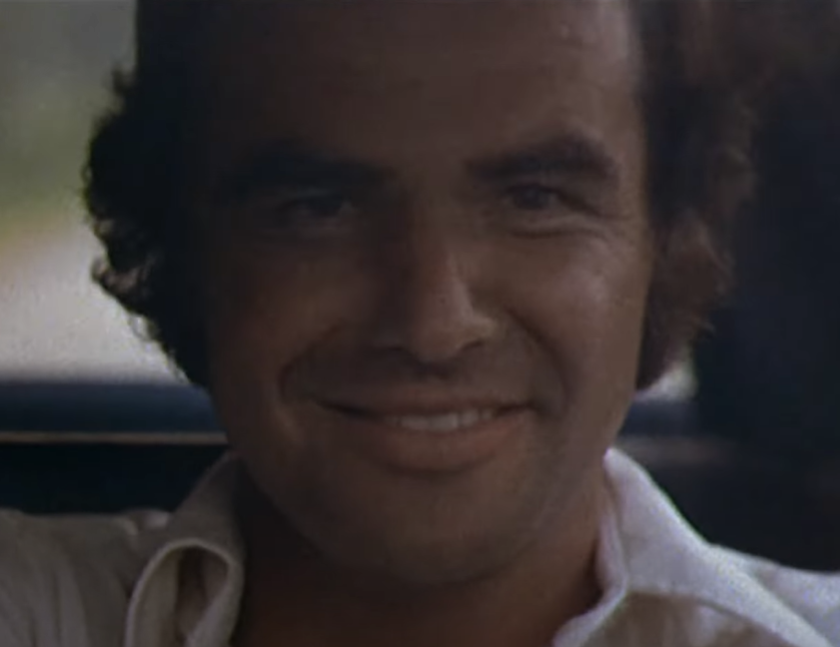 Levy-Gardner-Laven, White Lightning (1973)
Levy-Gardner-Laven, White Lightning (1973)
32. He Entered A New Phase
Although Reynolds had been an actor for over a decade by the time that 1973 came around, he had gotten little recognition for it. All of that changed with White Lightning. White Lightening marked a start in Reynolds' career where he focused on “light-hearted car-chase” themed films.
It was also the first time he appeared on the list of “most popular movie actors in the US”. He’d remain on that list for the rest of the decade.
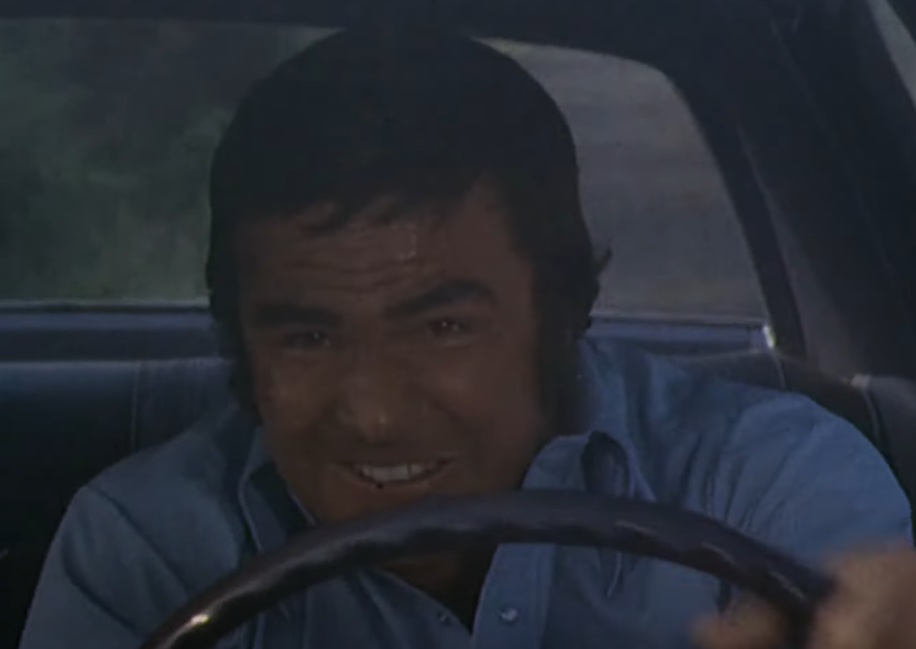 Levy-Gardner-Laven, White Lightning (1973)
Levy-Gardner-Laven, White Lightning (1973)
33. He Peaked
Almost every actor can mark the point at which their career peaked. For Reynolds that moment would be 1977 and the release of Smokey and the Bandit. Although he would continue to star in successful films, none of them would receive the same overall markers of success as Smokey and the Bandit. This was also when he met the so-called “love of his life”.
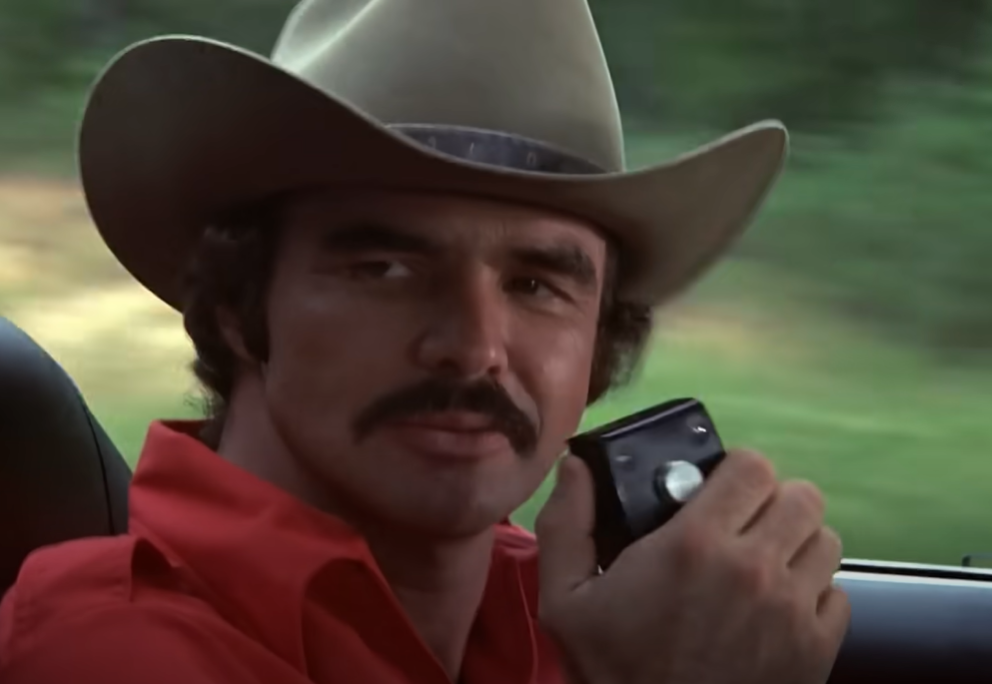 Universal, Smokey and the Bandit (1977)
Universal, Smokey and the Bandit (1977)
34. He Found Love
Looking back on Reynolds’ history, he had become something of a “serial dater”. However, since splitting with Dinah Shore, Reynolds had only had one small relationship with the singer Tammy Wynette which was brief and unremarkable. That would all change with Smokey and the Bandit and one important co-star—Sally Field.
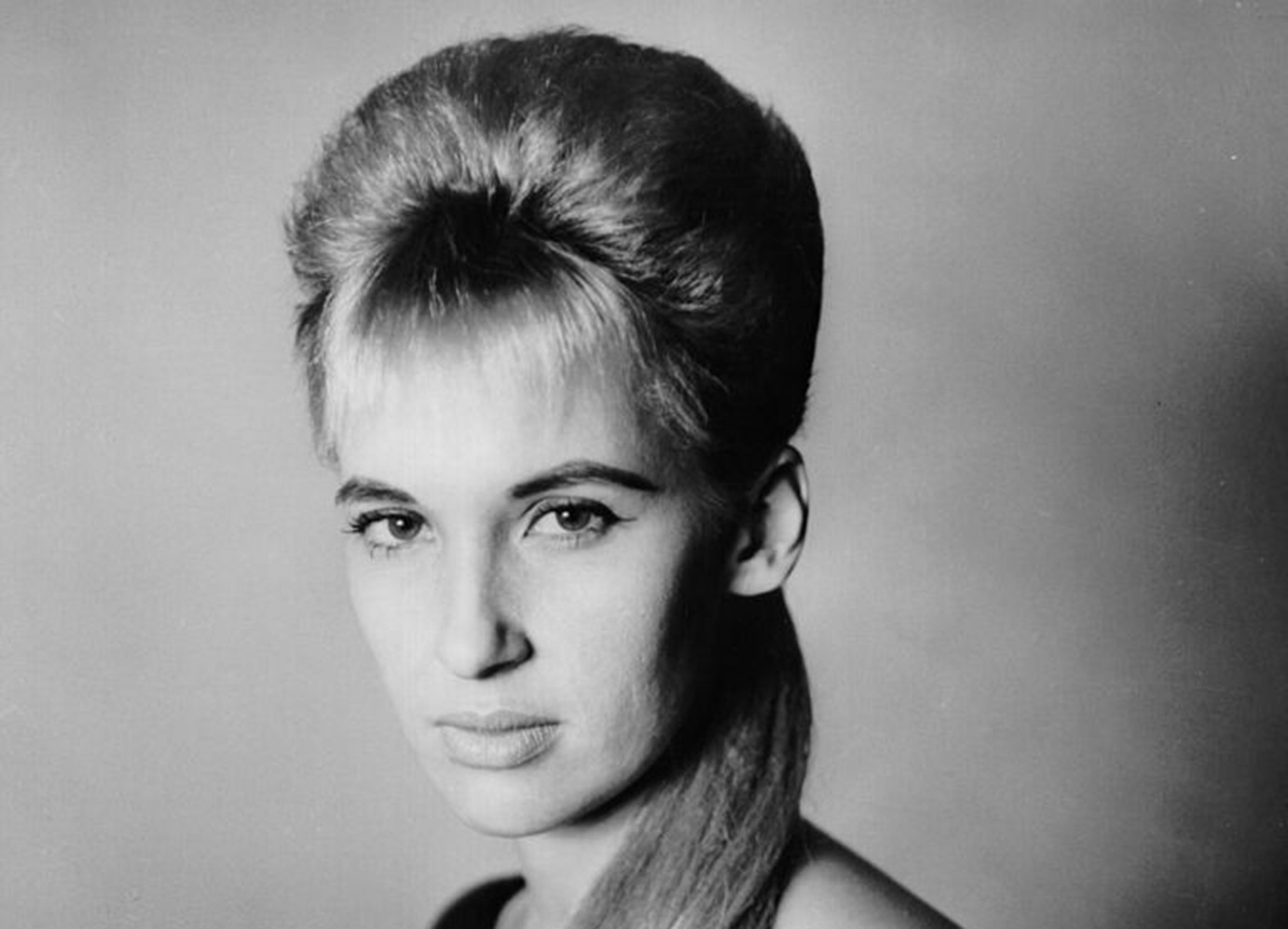 Getty Images, Wikimedia Commons
Getty Images, Wikimedia Commons
35. His Love Was Intense
The connection between Field and Reynolds was instantaneous. They both felt drawn to each other. Sally Field recalled it as an intense time: “We had known each other about three days, four days at that point. It was instantaneous, and four days felt like four years”. However, passion does not always mean a connection is healthy.
36. He Walked A Dangerous Line
The pair found themselves immediately entangled. Field recalled it being more than a simple “love affair”. Their own emotions and needs complicated the relationship even further. Field tended to care for people, thriving off of it, and Reynolds, by that point in his life, deeply needed someone to care for him. It was intoxicating even as it was dangerous.
37. He Was Trapped
Both Reynolds and Field felt that they were getting something out of the relationship, though it may not have been what either of them needed. Field felt desirable on Reynolds’ arm. However, she lost herself in the relationship, living for Reynolds alone. It may have been that very fact that Reynolds enjoyed the relationship.
38. He Was Controlling
Although Reynolds has never commented on his relationship with Field in a negative light, she has felt differently. In her memoir In Pieces, she revealed a darker side of their romance. Quite shockingly, she found Reynolds to be very controlling during their relationship.
To Field, “By the time we met, the weight of his stardom had become a way for Burt to control everyone around him, and from the moment I walked through the door, it was a way to control me”. Nothing showed this quite like when Field’s career began to surpass Reynolds’.
39. He Was Jealous
Reynolds and Field were still dating in 1980 when Field’s career began to see a significant rise. That year, the Academy nominated her for her role in Norma Rae. Later that night, she won. Not that Reynolds knew. The actor refused to go to the award ceremony with her.
Based on these disturbing allegations, it's no surprise that the relationship did not last long after this. His career continued to flounder as well.
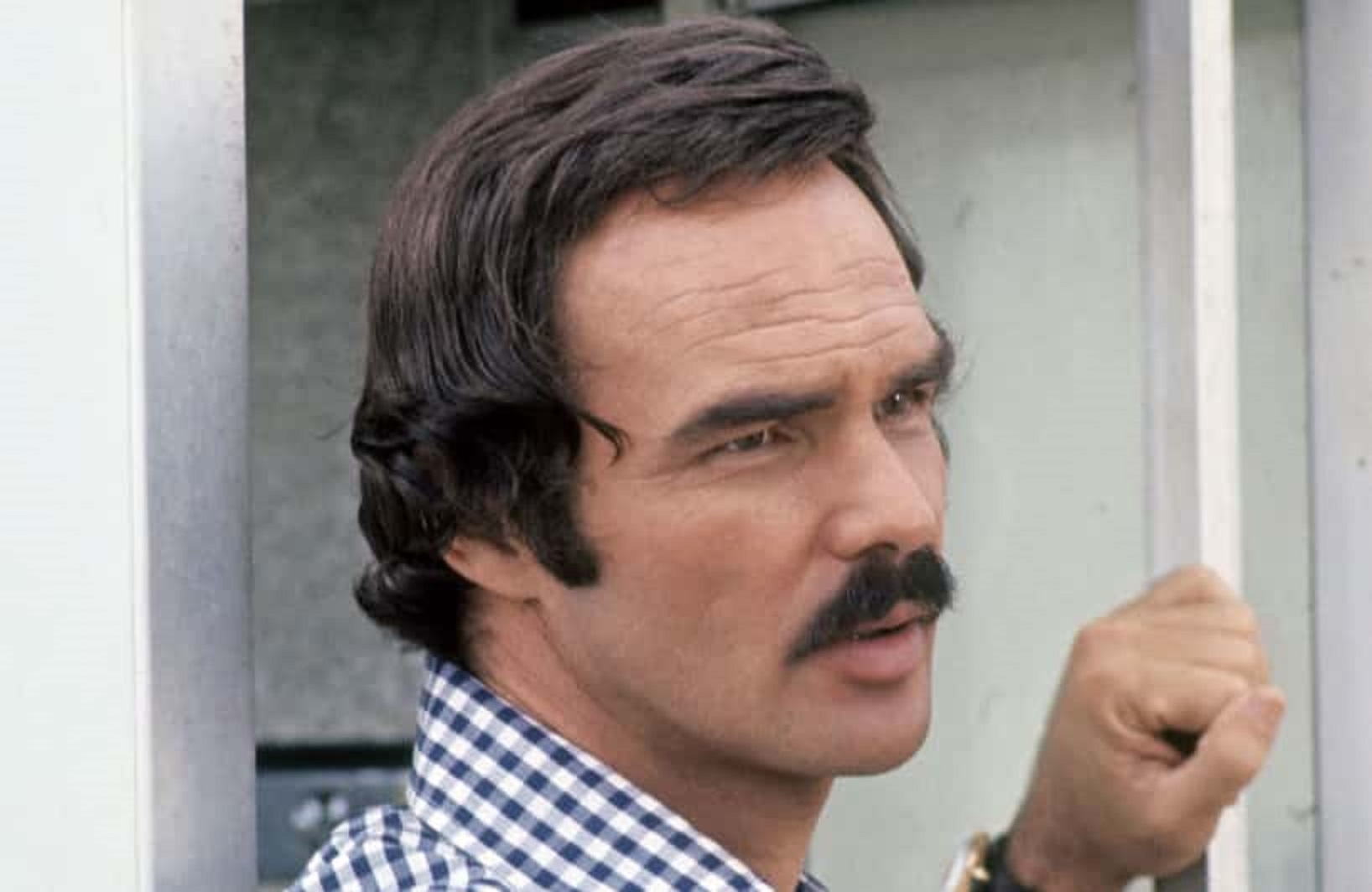 Silver Screen Collection, Getty Images
Silver Screen Collection, Getty Images
40. He Made Bad Calls
If there was one undeniable flaw that Reynolds had, it was that he was often his own worst enemy. He constantly turned down roles that could have made his career huge. There was already the rumor he’d turned down The Godfather. But, apparently, that was just the tip of the iceberg.
Sources say that he also turned down Han Solo in Star Wars, Garrett Breedlove in Terms of Endearment, and James Bond because he felt “James Bond couldn’t be American”. This may have been why his career saw a downturn by the mid to late '80s.
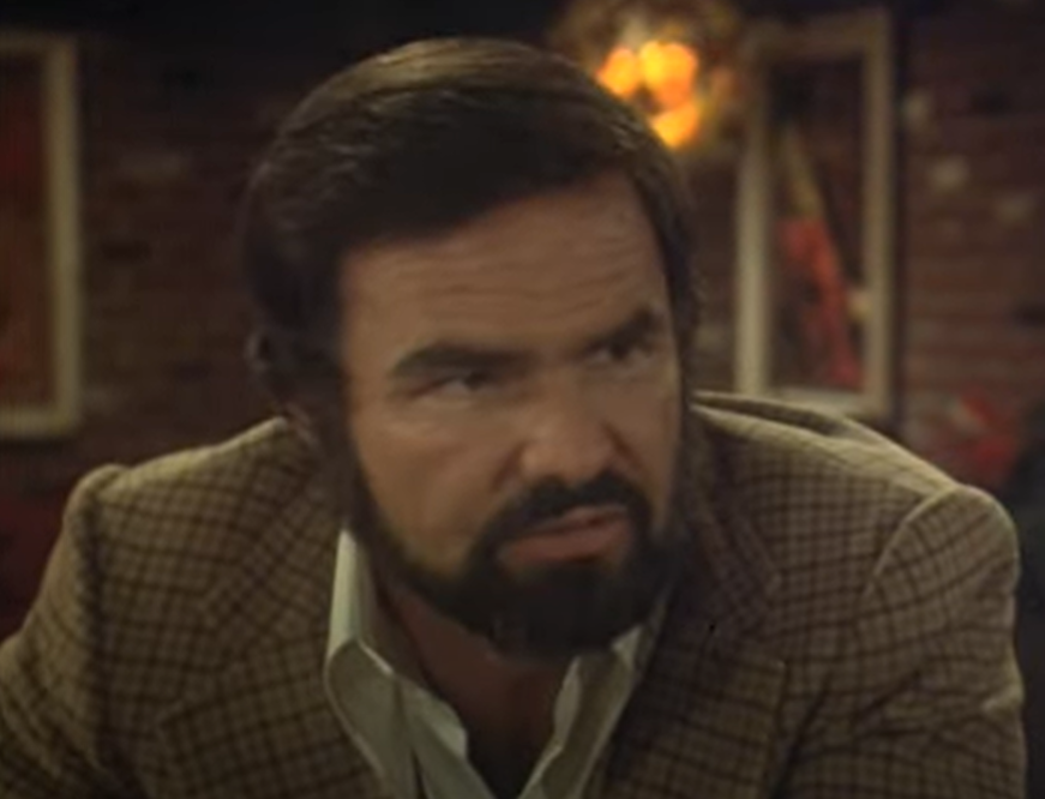 Gordon-Reynolds Productions, The End (1978)
Gordon-Reynolds Productions, The End (1978)
41. He Changed Focus
Reynolds could not sustain his fame as the '80s wore on. Some bad choices led to his fanbase losing trust in him. He was, in part, saved by his directorial work, which he started in 1976. At one point he stated, “I'm in my late 40s. I realize I have four or five more years where I can play certain kinds of parts and get away with it. That's why I'm leaning more and more toward directing and producing”.
He wanted to pick and choose his roles; finally, he made some choices that worked.
42. He Went Back
Reynolds would not see a true uptick in his career until 1989 when he returned to television. From 1989 to 1990 he starred in BL Stryker, a detective series, and then Evening Shade from 1990 to 1994. Evening Shade, in particular, revived his career. He won an Emmy for his role in 1991 and a Golden Globe in 1992.
But though his gasping career managed to stay afloat, his personal life was about to sink like a stone.
43. He Moved On
While Reynolds would later go on to say that he regretted letting Sally Field go, even stating that she was the "love of his life," he would not take long to find love again. He and Field went separate ways in 1980, but he met Loni Anderson the very next year. By 1982, they were dating, and in 1988, the pair married in a small private ceremony on Reynolds’ property.
What started as a "happily ever after" would quickly fall into a messy feud.
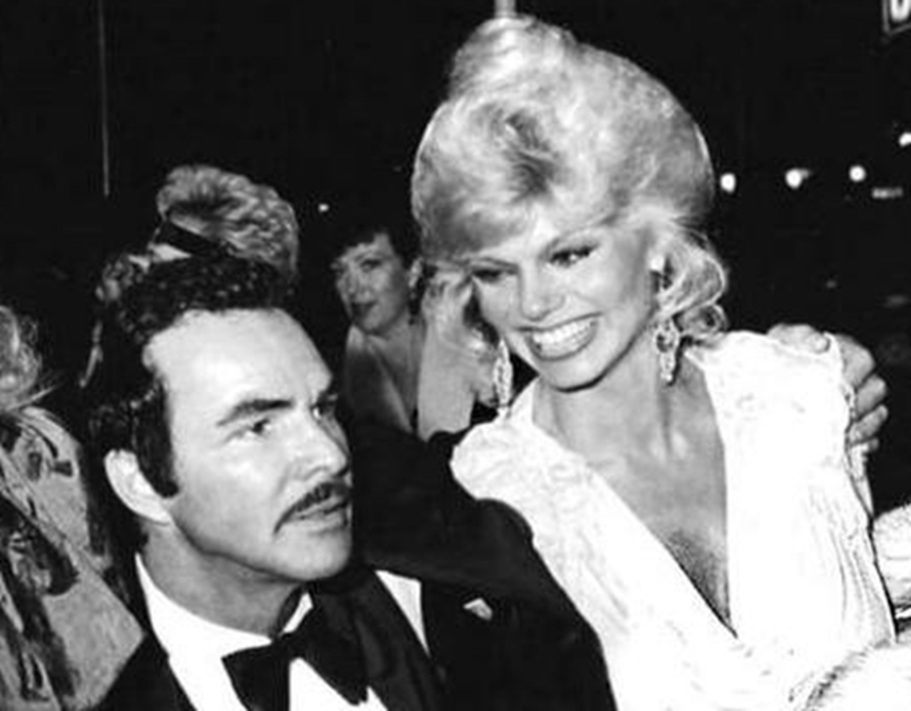 Janet Gough, Wikimedia Commons
Janet Gough, Wikimedia Commons
44. He Made A Life
Loni Anderson and Burt Reynolds remained together for five years and also adopted one son, Quinton Reynolds. It seemed, for a time, that Reynolds had finally figured it out. However, neither of these things would stop the relationship from falling apart—and when it did, it was a downright disaster.
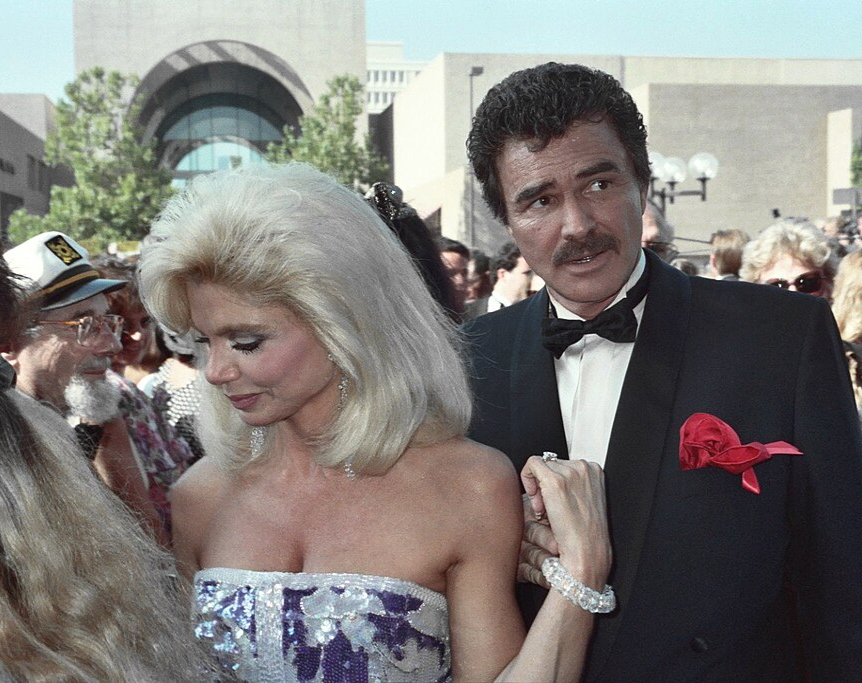 Alan Light, CC BY 2.0, Wikimedia Commons
Alan Light, CC BY 2.0, Wikimedia Commons
45. His Life Fell Apart
In 1994, Reynolds filed for divorce. The divorce, reportedly, shocked Anderson. Reynolds did not know why. He had no problem announcing in public that the pair had not been intimate for a long time: “I don’t see how she can be in total shock when you have not … if your husband has not touched you in the biblical sense … in almost three years".
This wasn’t the only thing that Reynolds said in public.
46. He Was Bitter
As the divorce was being processed, Reynolds was constantly out in public, making scandalous declarations about his soon-to-be ex-wife. He admitted to cheating but only because she had supposedly cheated first. He slandered her whenever he could. However, Anderson refused to do so in return.
Anderson told people not to involve themselves; Reynolds wanted to fight but Anderson refused to play. She’d win in the end.
47. He Lost Money
Reynolds’ divorce from Anderson marked a period of financial trouble. His divorce cost him millions in alimony and settlements. He’d made bad investments that resulted in the loss of $20 million. CBS sued him for failing to return a $3.7 million loan. His career was also failing. As a result, Reynolds filed for bankruptcy not long after he finalized his divorce. He was at a low—yet, something was around the corner.
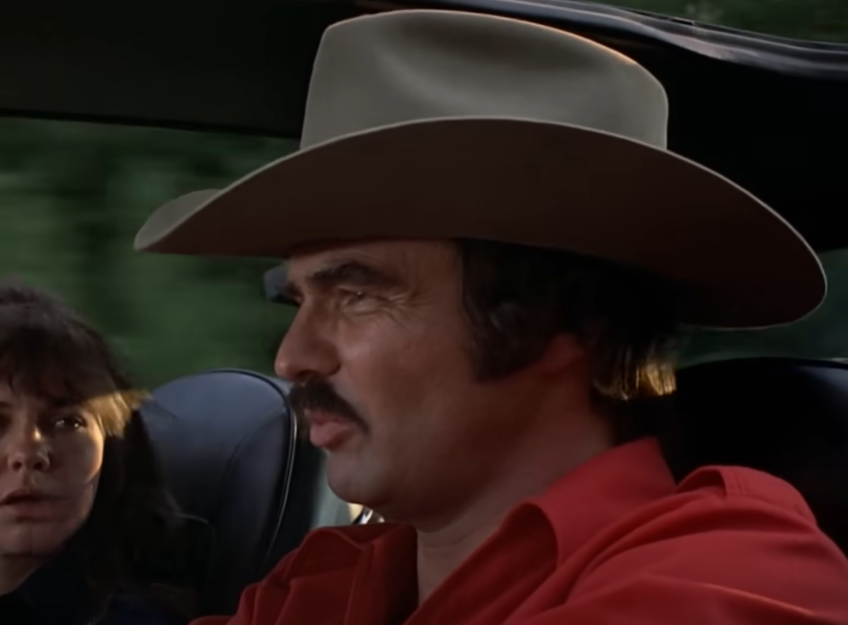 Universal, Smokey and the Bandit (1977)
Universal, Smokey and the Bandit (1977)
48. He Had Success
There was one silver lining for Reynolds during this period. In 1997, they released Boogie Nights to much critical acclaim. Reynolds played the role of a director of “promiscuous” films; many consider it his comeback role. It would also earn him a Golden Globe win and an Oscar nomination. It might have been more effective in reviving his career if Reynolds hadn’t fallen back on old habits.
49. He Got In His Own Way
Boogie Nights may have gained Reynold more recognition. However, Reynolds hated it—and went so far as to fire his agent over the matter. When an opportunity to be in Magnolia with the same director, Paul Thomas Anderson, came up, Reynolds turned it down. His reason was that he hated working with Anderson. Reynolds continued to be his own worst enemy.
50. His Star Dwindled
Although Reynolds would continue to work throughout the rest of the 1990s and early 2000s, he would never reach the fame that he had previously held. It would seem that he had used up all of his good fortune, and his time in Hollywood was up. However, In May 2018, he got one last opportunity to pull himself back up—unfortunately, it came too late.
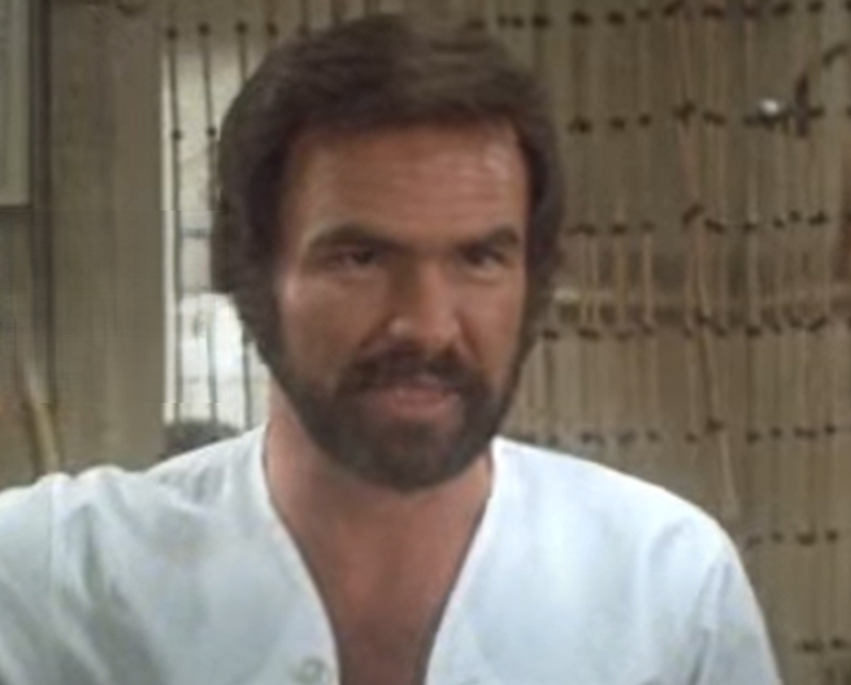 Gordon-Reynolds Productions, The End (1978)
Gordon-Reynolds Productions, The End (1978)
51. He Had A Second Shot
Reynolds signed on to be a part of the cast of Quentin Tarantino’s successful movie, Once Upon a Time in Hollywood. It was possible this small role could have brought Reynolds back into relevance. Unfortunately, he would not live to see it through. In September 2018, Reynolds passed of a heart attack.
He never started filming Once Upon a Time in Hollywood. Yet, he was not forgotten.
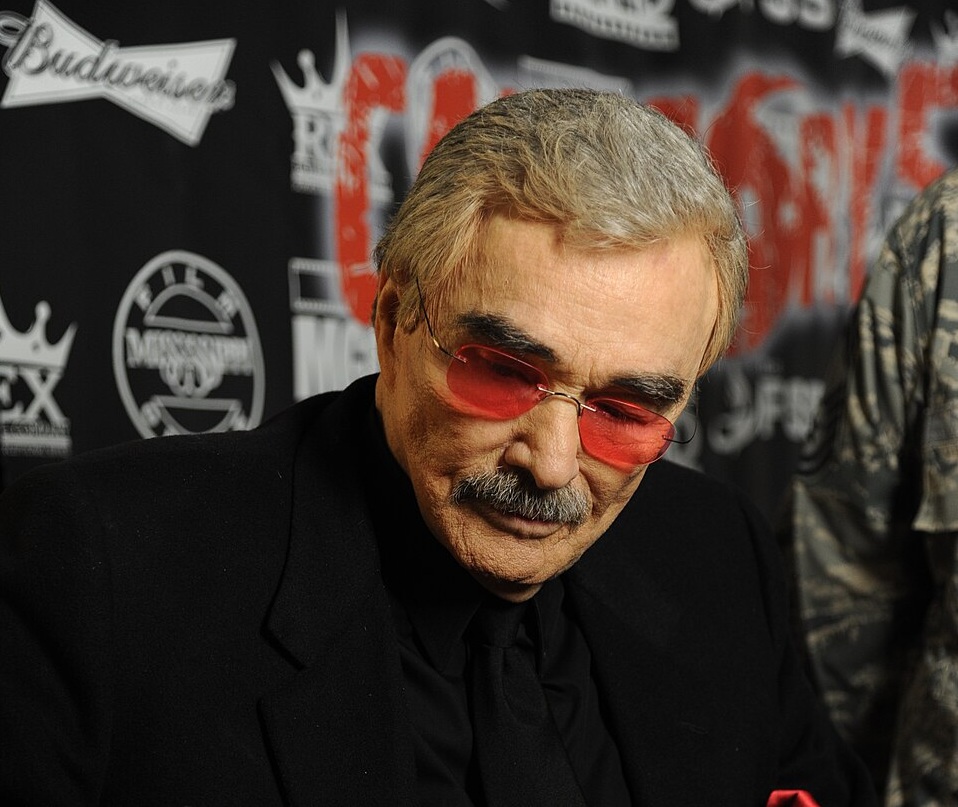 Kemberly Groue, Wikimedia Commons
Kemberly Groue, Wikimedia Commons
52. He Was Put To Rest
Despite his turbulent life and career, both his past loved ones and the public marked Reynolds' loss. Both Anderson and Field came to his funeral. Anderson stated, “He was a big part of my life for twelve years and Quinton's father for thirty years. We will miss him and his great laugh”.
Field expressed her gratitude that he'd passed before her biography came out, “I felt glad that he wasn’t going to read it... I did not want to hurt him any further”.
You May Also Like:
America’s Favorite Game Show Host Had A Chilling Dark Side
This “Dallas” Star Met A Heartbreaking End
Dustin Hoffman Is Hollywood’s Ultimate Antihero

